As search engine algorithms evolve, the art of link building is undergoing a seismic transformation. Traditional strategies, once focused solely on acquiring backlinks, now prioritize quality, relevance, and sustainability. This shift is driven by the growing emphasis on user experience and ethical SEO practices.
Gone are the days of link farms and excessive anchor text optimization. Today, search engines reward authentic connections between websites. As the digital landscape changes, businesses must adapt their strategies to remain competitive while fostering genuine relationships within their niches.
This article explores the future of link building, providing actionable insights into sustainable strategies that align with modern SEO practices. Whether you're a seasoned marketer or new to digital strategies, these tips will guide you toward long-term success.
Contents:
- Why Link Building Remains Critical in SEO
- Emerging Trends in Link Building
- Sustainable Link Building Strategies for the Future
- The Role of AI and Automation in Link Building
- How to Measure the Success of Your Link Building Campaign
Conclusion
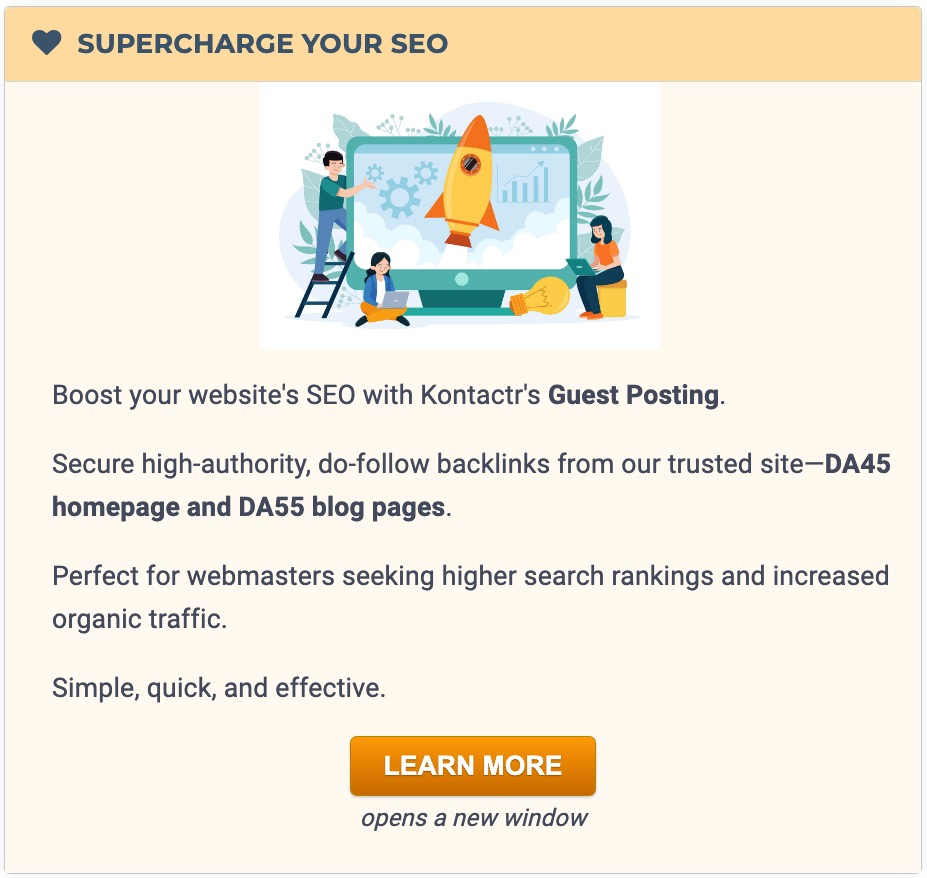
1. Why Link Building Remains Critical in SEO
Link building has always been a cornerstone of search engine optimization. It establishes a website’s authority, credibility, and trustworthiness in the eyes of search engines. Even as algorithms become more complex, links remain a significant ranking factor.
Search engines like Google interpret backlinks as endorsements of a website's content. A link from a reputable source signals to search engines that the content is valuable and relevant, leading to higher rankings. Without a robust link-building strategy, websites may struggle to achieve visibility in competitive niches.
But today’s link building is about more than just rankings. It also:
- Drives referral traffic: High-quality backlinks direct engaged users to your website, boosting traffic and conversions.
- Enhances brand visibility: Strategic placements on industry-relevant sites increase brand awareness and credibility.
- Supports partnerships: Collaborating with authoritative websites fosters relationships that extend beyond SEO.
In the ever-changing world of SEO, a sustainable link-building strategy is no longer optional—it's essential.
2. Emerging Trends in Link Building
As SEO evolves, so do link-building practices. Staying ahead of trends is vital for crafting strategies that resonate with search engines and audiences alike. Here are the key trends shaping the future of link building:
Content-Led Link Building
High-quality content remains the foundation of effective link-building campaigns. Creating valuable, shareable, and engaging content naturally attracts backlinks, reducing the need for aggressive outreach.
Types of content that drive links include:
- In-depth guides: Comprehensive resources that establish authority in a niche.
- Infographics: Visual content that simplifies complex information.
- Case studies: Real-world examples that showcase expertise and results.
Focus on E-A-T (Expertise, Authority, Trustworthiness)

Google’s emphasis on E-A-T has made authenticity a priority. Links from sites that demonstrate expertise, authority, and trustworthiness carry more weight, making it crucial to target reputable domains within your industry.
Collaborative Content Partnerships
Rather than solely seeking backlinks, brands are increasingly opting for collaborative partnerships. Co-authoring content or participating in webinars creates opportunities for organic link acquisition while strengthening industry connections.
The Role of Artificial Intelligence
AI tools are revolutionizing link building by analyzing link opportunities, evaluating metrics, and predicting campaign outcomes. Leveraging AI helps streamline processes and improve efficiency, particularly in competitive markets.
3. Sustainable Link Building Strategies for the Future
To thrive in the evolving SEO landscape, businesses must adopt sustainable link-building strategies. These approaches prioritize long-term success over short-term gains:
Prioritize Quality Over Quantity
Fewer, high-quality backlinks from authoritative sources are far more impactful than numerous low-quality links. Focus on securing links from sites that align with your niche and have a strong domain authority.
Create Evergreen Content
Evergreen content—articles that remain relevant over time—consistently attracts links.
Examples include:
- How-to guides
- Industry insights
- Comprehensive glossaries
Build Relationships, Not Just Links
Networking with influencers, bloggers, and industry professionals leads to organic link-building opportunities. These relationships often result in long-term partnerships, benefiting both parties.
Leverage User-Generated Content
User-generated content (UGC) can amplify your link-building efforts. Encourage your audience to create and share content about your brand, increasing the likelihood of earning backlinks from their platforms.
Monitor and Reclaim Broken Links
Identifying broken links on other websites and offering your content as a replacement is a win-win strategy. Tools like Ahrefs or SEMrush simplify the process of finding broken links and reclaiming them.
These strategies reflect the shift towards sustainable SEO practices, emphasizing relevance, authenticity, and long-term value.
4. The Role of AI and Automation in Link Building
Artificial intelligence and automation are rapidly transforming link-building strategies, enabling marketers to save time and achieve better results. While traditional methods often involve time-consuming research and outreach, AI streamlines these processes with remarkable precision.
AI-Powered Link Analysis
AI tools analyze backlink profiles, identifying opportunities for improvement and uncovering potential link sources. Platforms like SEMrush and Ahrefs leverage machine learning algorithms to evaluate link quality and provide actionable insights for your campaigns.
Automated Outreach Campaigns

Automation tools such as Pitchbox and BuzzStream enhance the efficiency of outreach campaigns. These platforms help manage large-scale outreach efforts by personalizing emails, tracking responses, and automating follow-ups, reducing the manual workload.
Content Optimization with AI
AI also plays a crucial role in content creation and optimization. Tools like Jasper and ChatGPT assist in crafting high-quality content tailored to specific audiences, increasing the chances of earning backlinks from authoritative sites.
Embracing AI and automation ensures that your link-building strategies remain competitive in a rapidly changing digital landscape.
5. How to Measure the Success of Your Link Building Campaign
Measuring the effectiveness of your link-building efforts is essential to refine your strategies and maximize ROI. Success metrics help identify what’s working and highlight areas for improvement.
Track Key Performance Indicators (KPIs)
The following KPIs are crucial for evaluating your campaign’s performance:
- Domain Authority (DA): Monitor the authority of the sites linking to your content.
- Referral Traffic: Analyze the traffic generated from backlinks.
- Link Diversity: Ensure your links come from a variety of sources to avoid over-reliance on a single domain.
- Conversion Rates: Measure how effectively referral traffic contributes to your goals, such as sign-ups or purchases.
Use Analytical Tools
Tools like Google Analytics and Moz provide valuable insights into backlink performance. They help track referral traffic, identify high-performing links, and assess their overall impact on your SEO strategy.
Monitor Brand Mentions
Tracking brand mentions across the web ensures you capitalize on unlinked mentions by reaching out and requesting links. Tools like BrandMentions simplify the process, helping you convert mentions into valuable backlinks.
Regularly Audit Your Backlink Profile
Conducting regular audits with tools like Ahrefs allows you to evaluate the quality and relevance of your backlinks. Identify toxic links and disavow them to maintain a healthy link profile and avoid penalties from search engines.
Conclusion
The future of link building lies in embracing sustainable practices that prioritize quality, relevance, and authenticity. As search engines continue to refine their algorithms, businesses must adapt their strategies to remain competitive and foster genuine relationships within their industries.
By leveraging emerging trends, embracing AI and automation, and measuring campaign performance, marketers can achieve long-term success in an ever-changing SEO landscape. Sustainable link building is not only a necessity but also an opportunity to strengthen your brand’s authority and visibility.

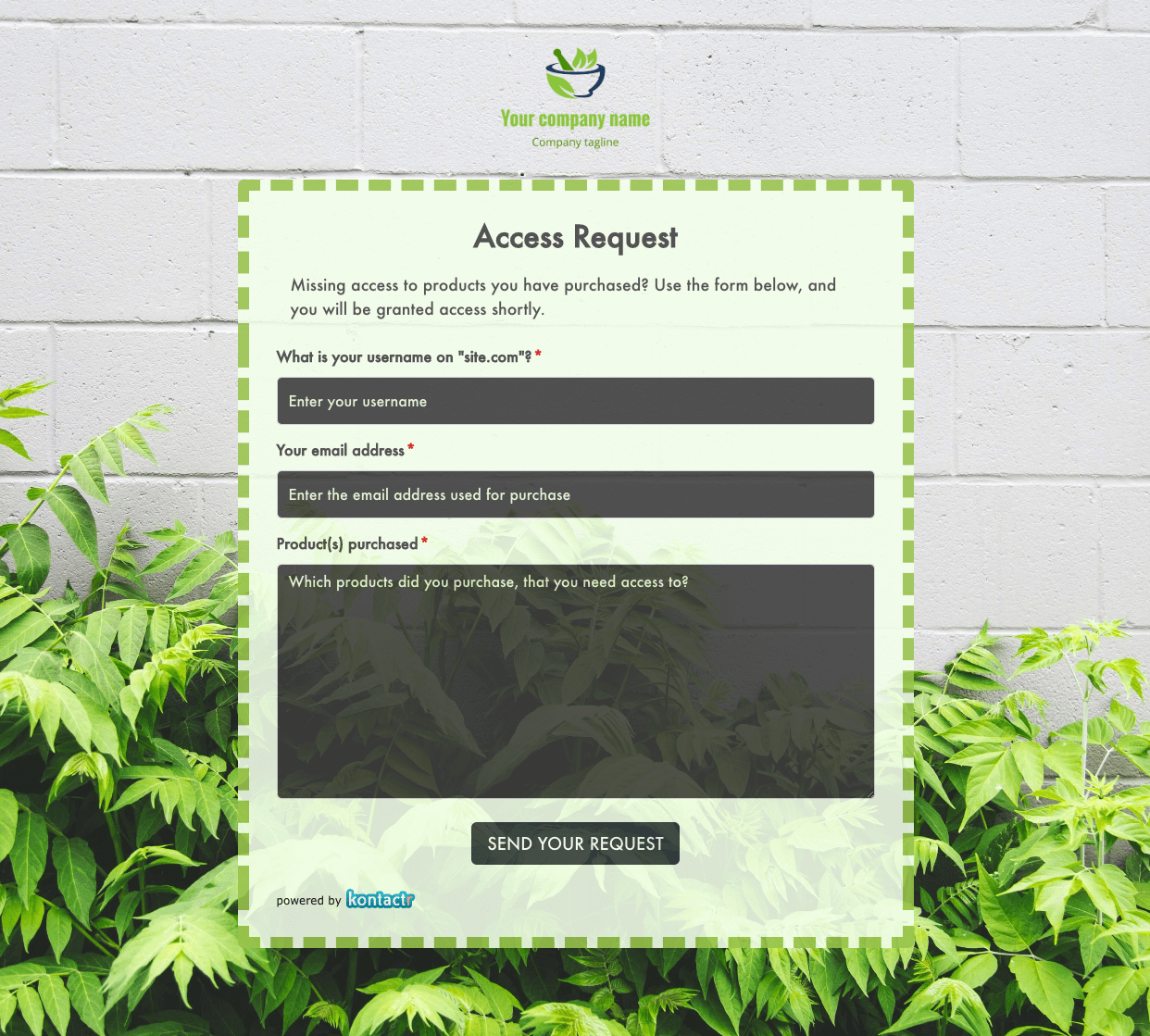 Access Request Form
Access Request Form
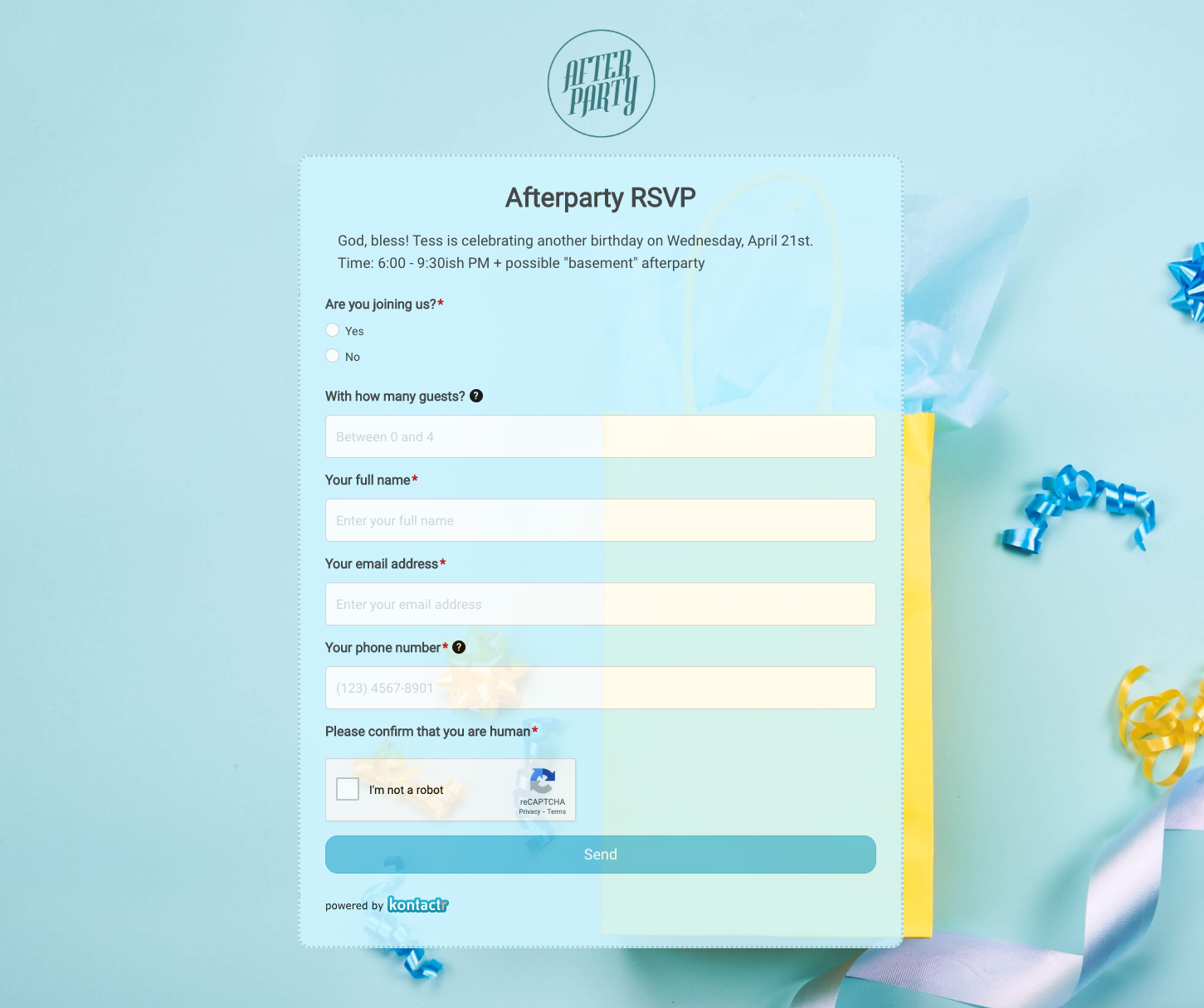 Afterparty RSVP Form
Afterparty RSVP Form
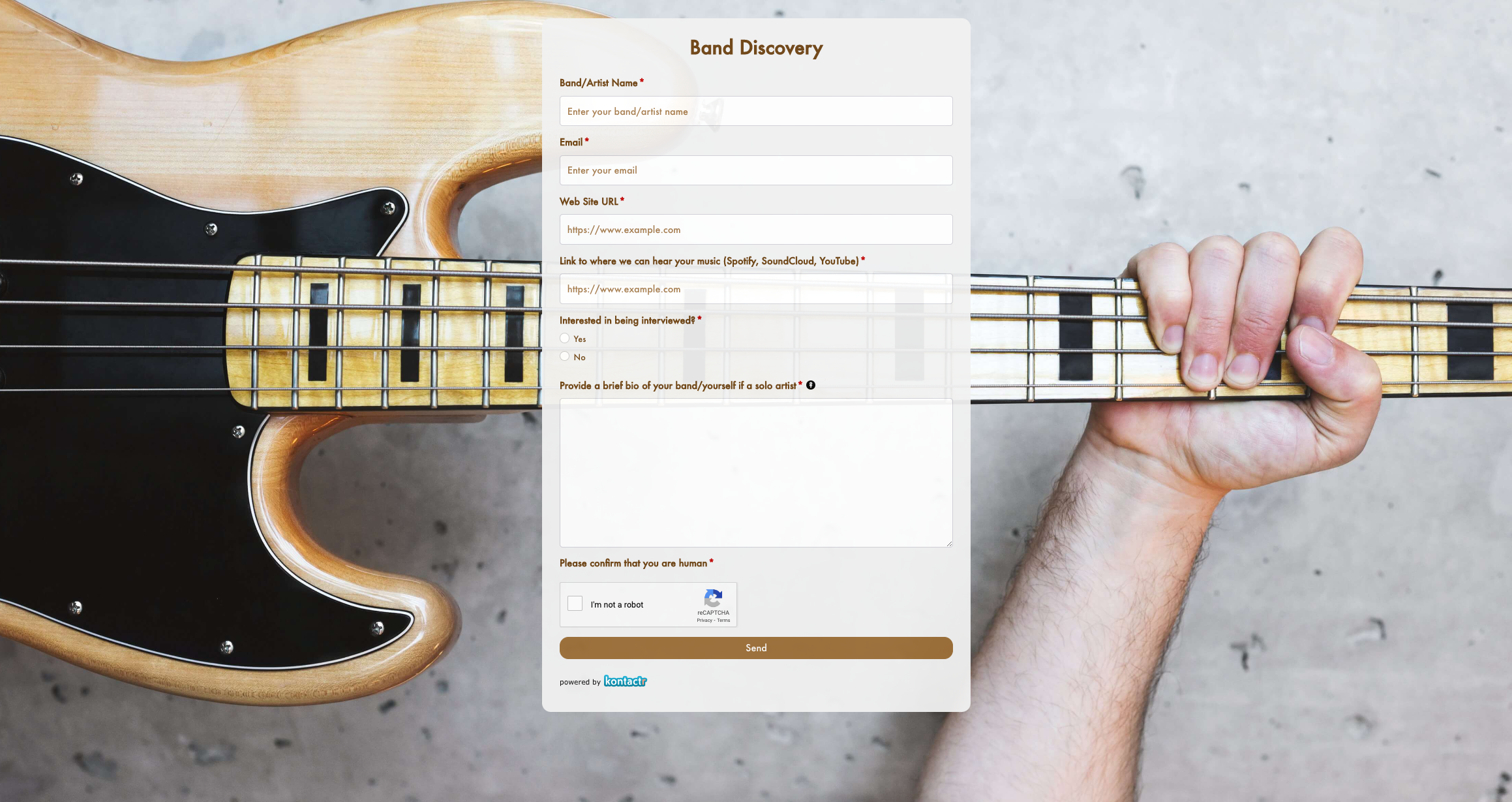 Band Discovery Form
Band Discovery Form
 Book a room Form
Book a room Form
 Booking Enquiries Form
Booking Enquiries Form
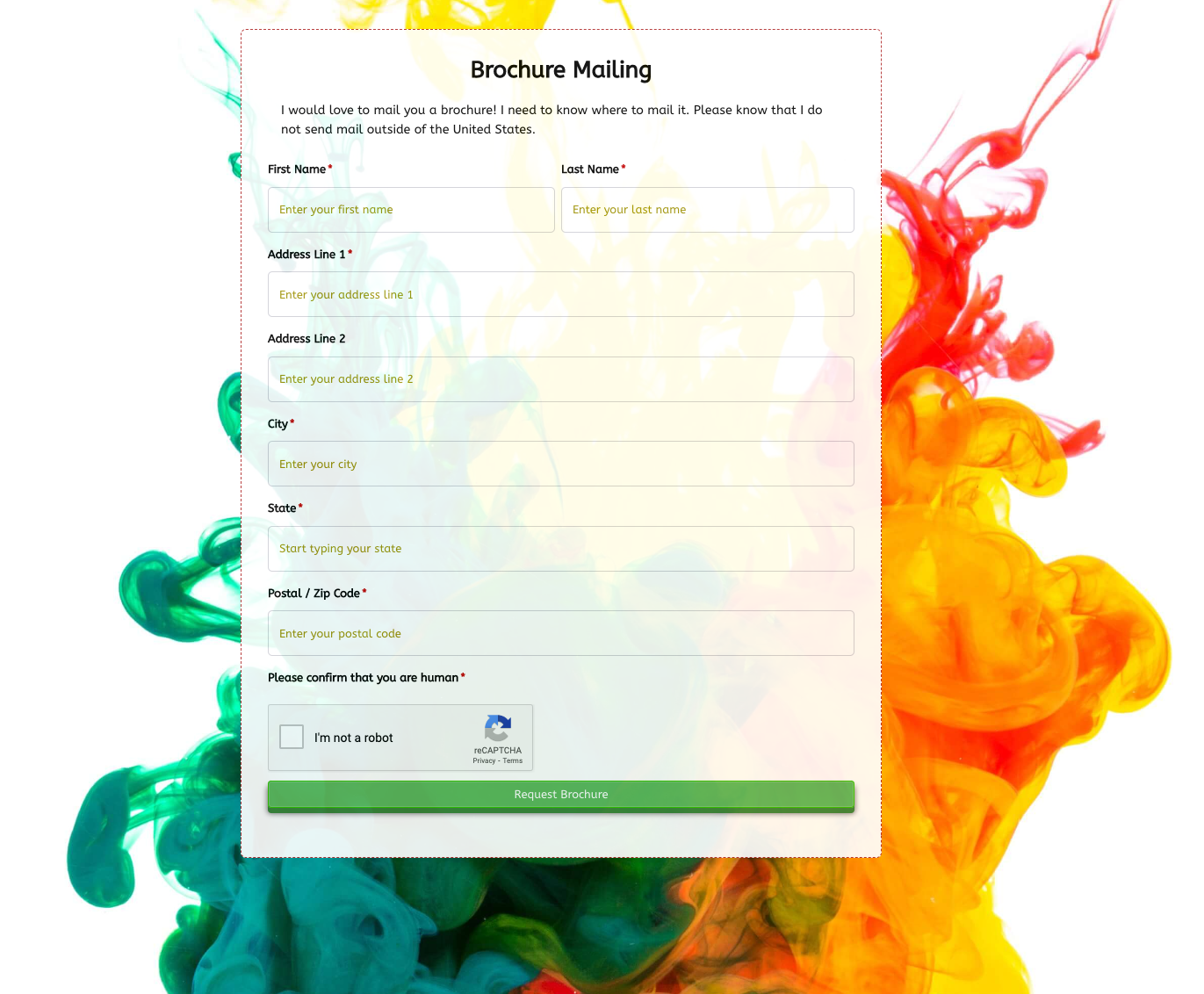 Brochure Mailing Form
Brochure Mailing Form
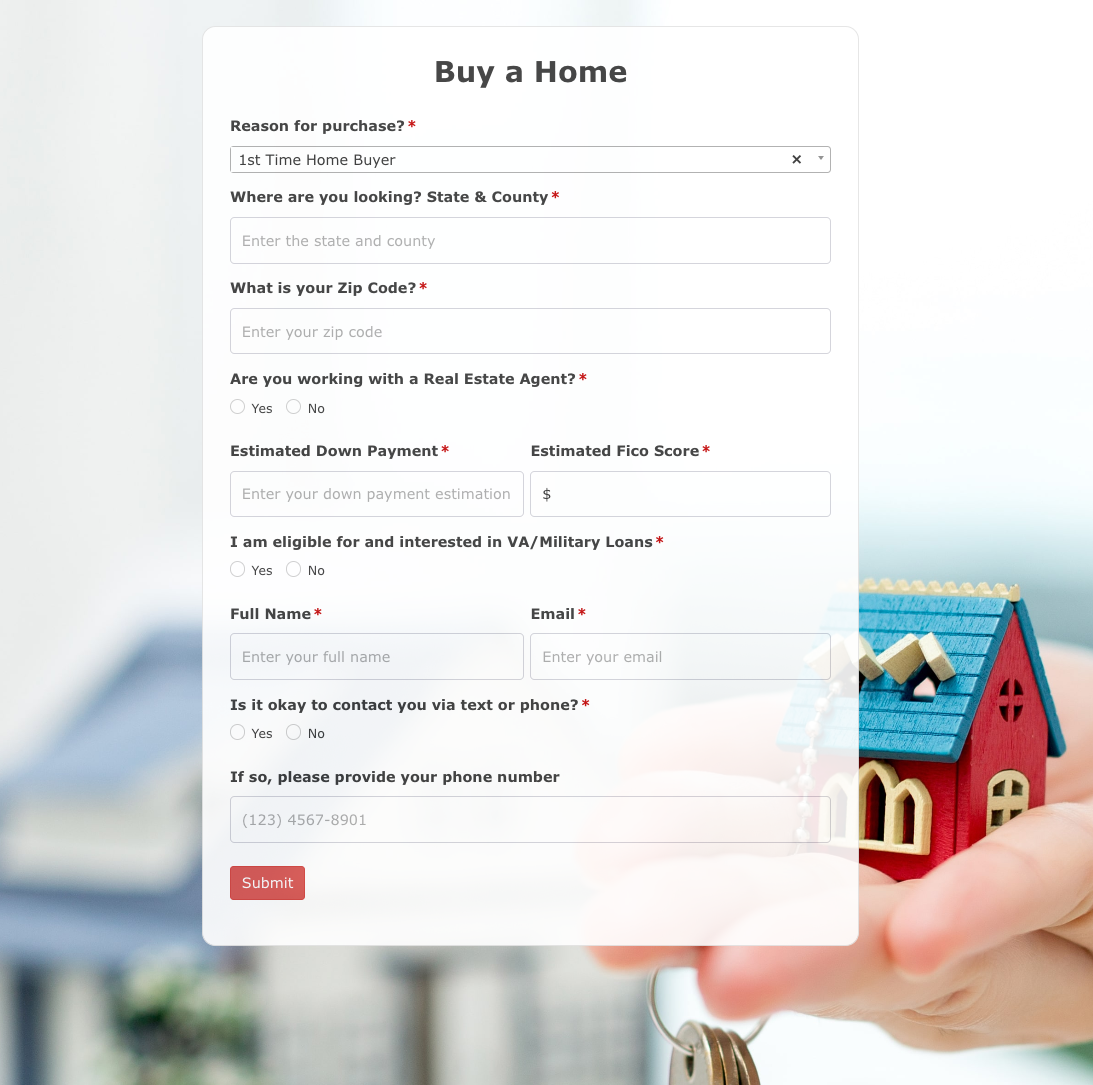 Buy a Home Form
Buy a Home Form
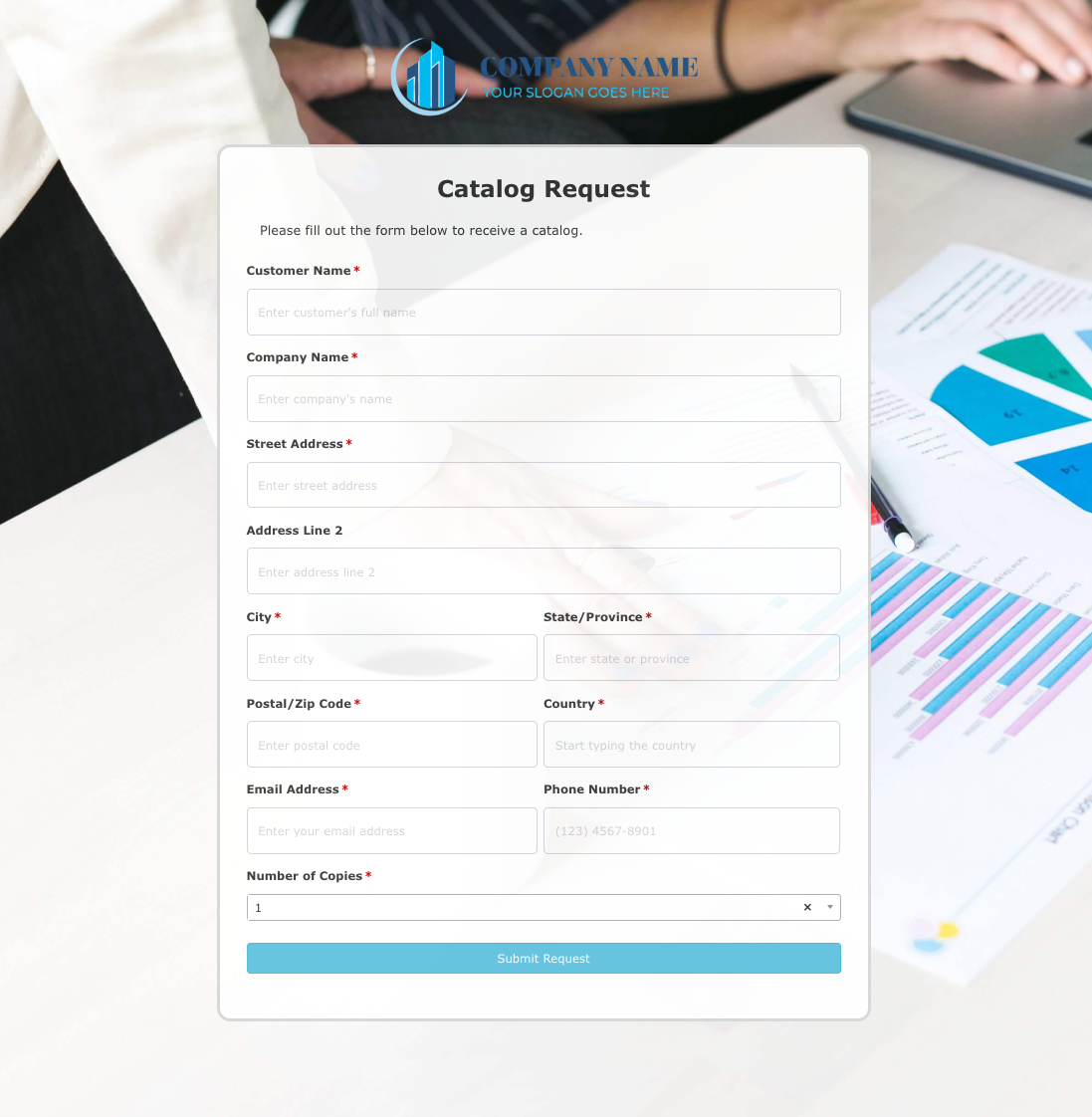 Catalog Request Form
Catalog Request Form
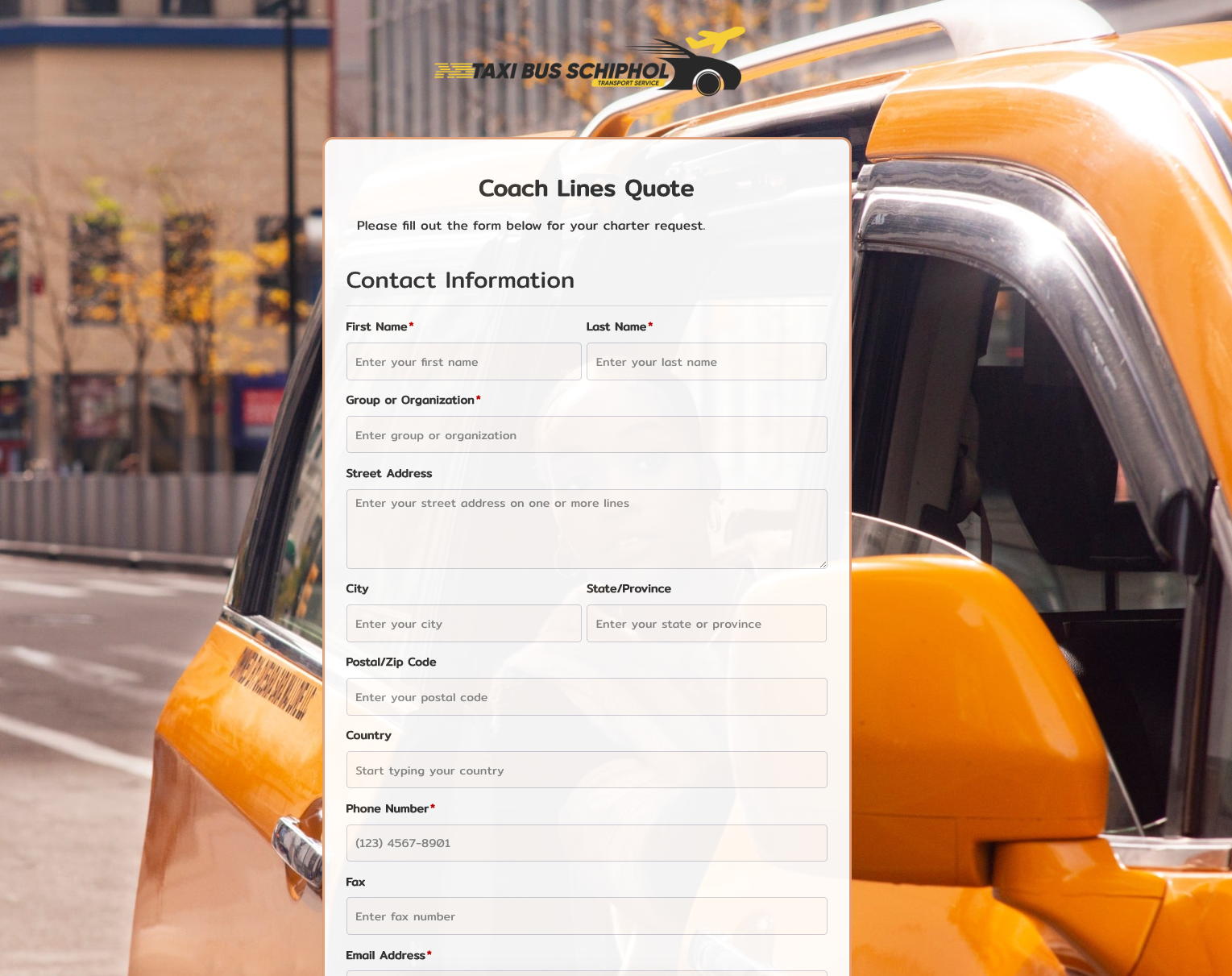 Coach Lines Quote Form
Coach Lines Quote Form
 Contact Us Form
Contact Us Form
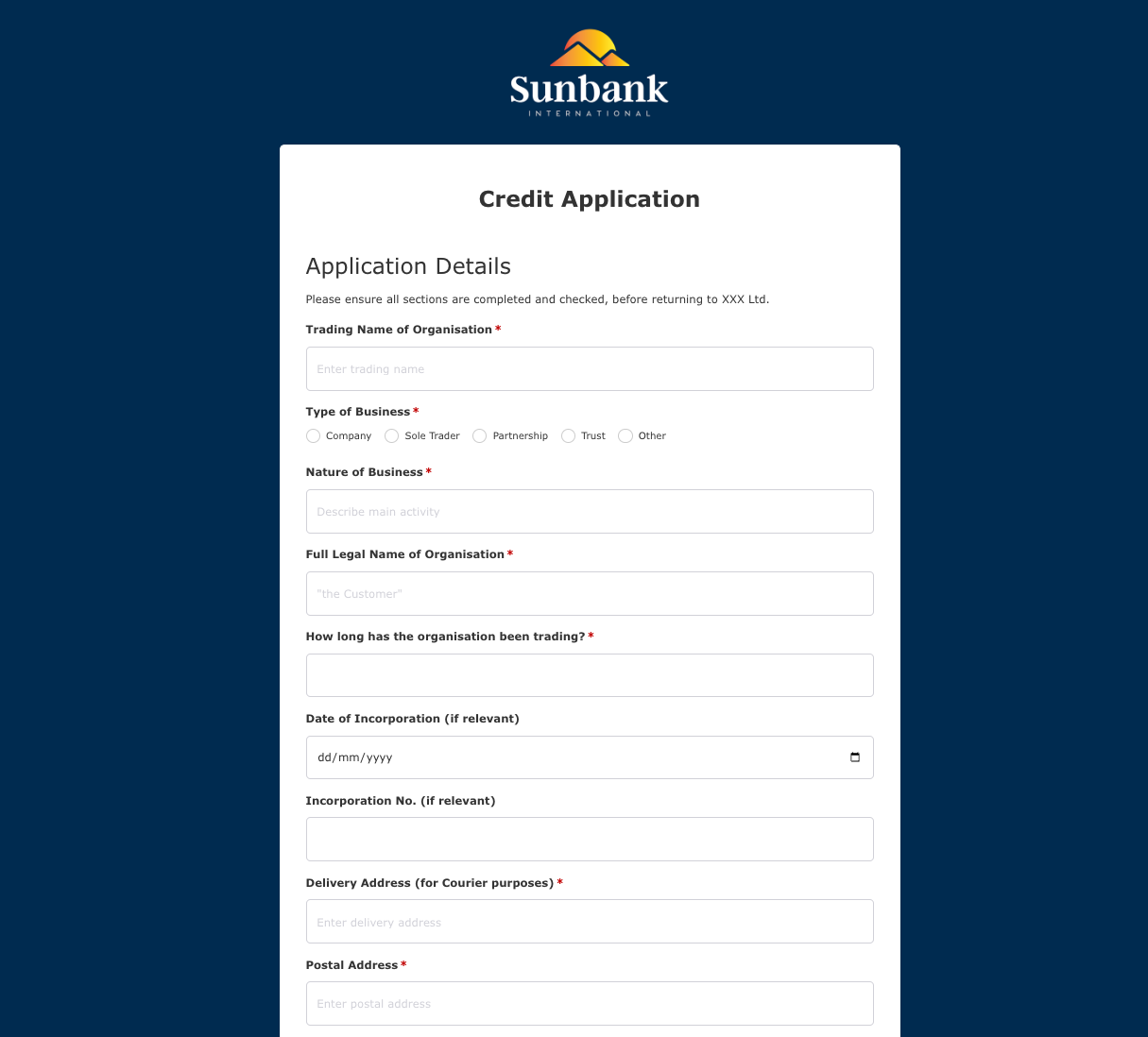 Credit Application Form
Credit Application Form
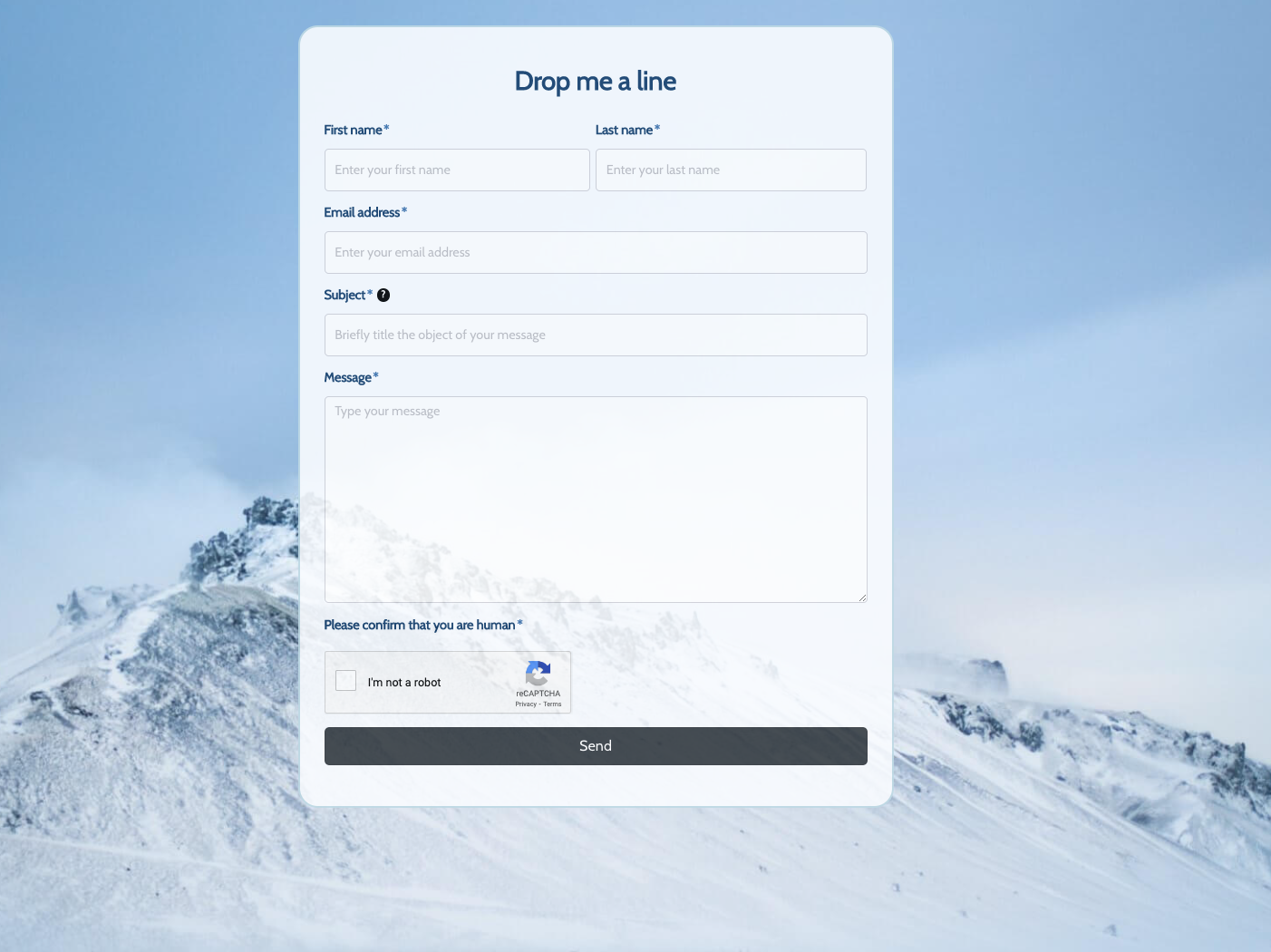 Drop me a line Form
Drop me a line Form
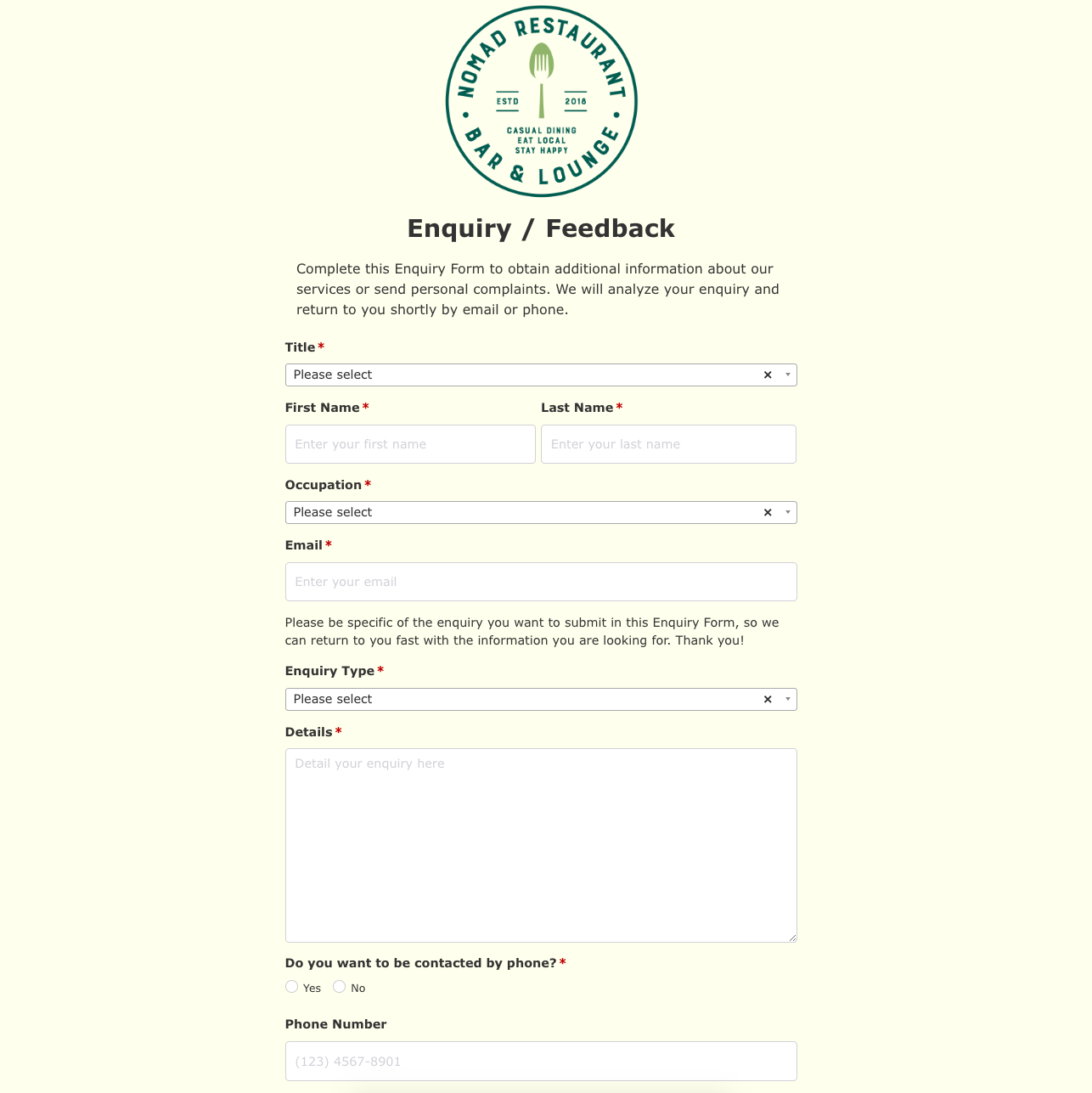 Enquiry / Feedback Form
Enquiry / Feedback Form
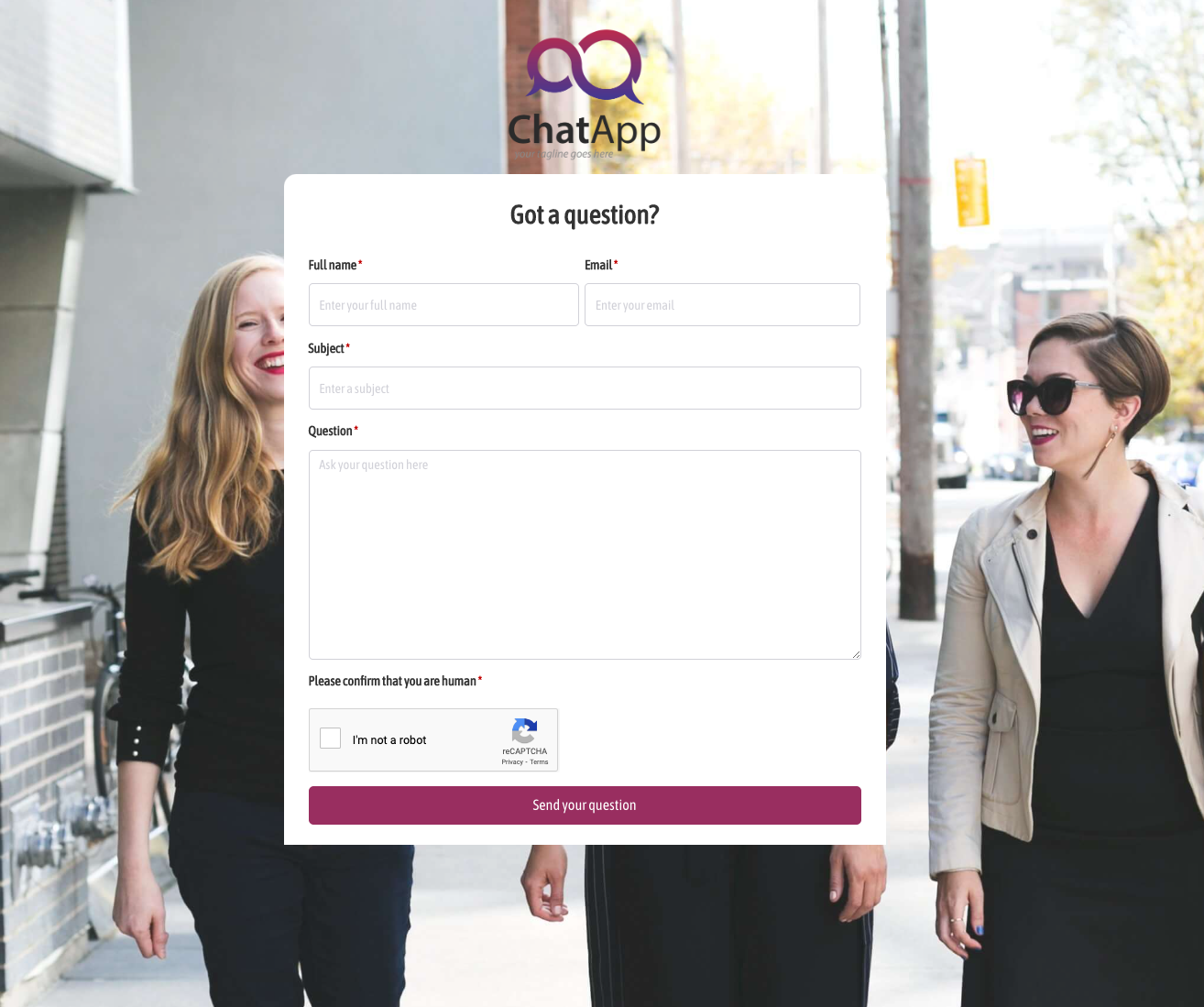 Got a question? Form
Got a question? Form
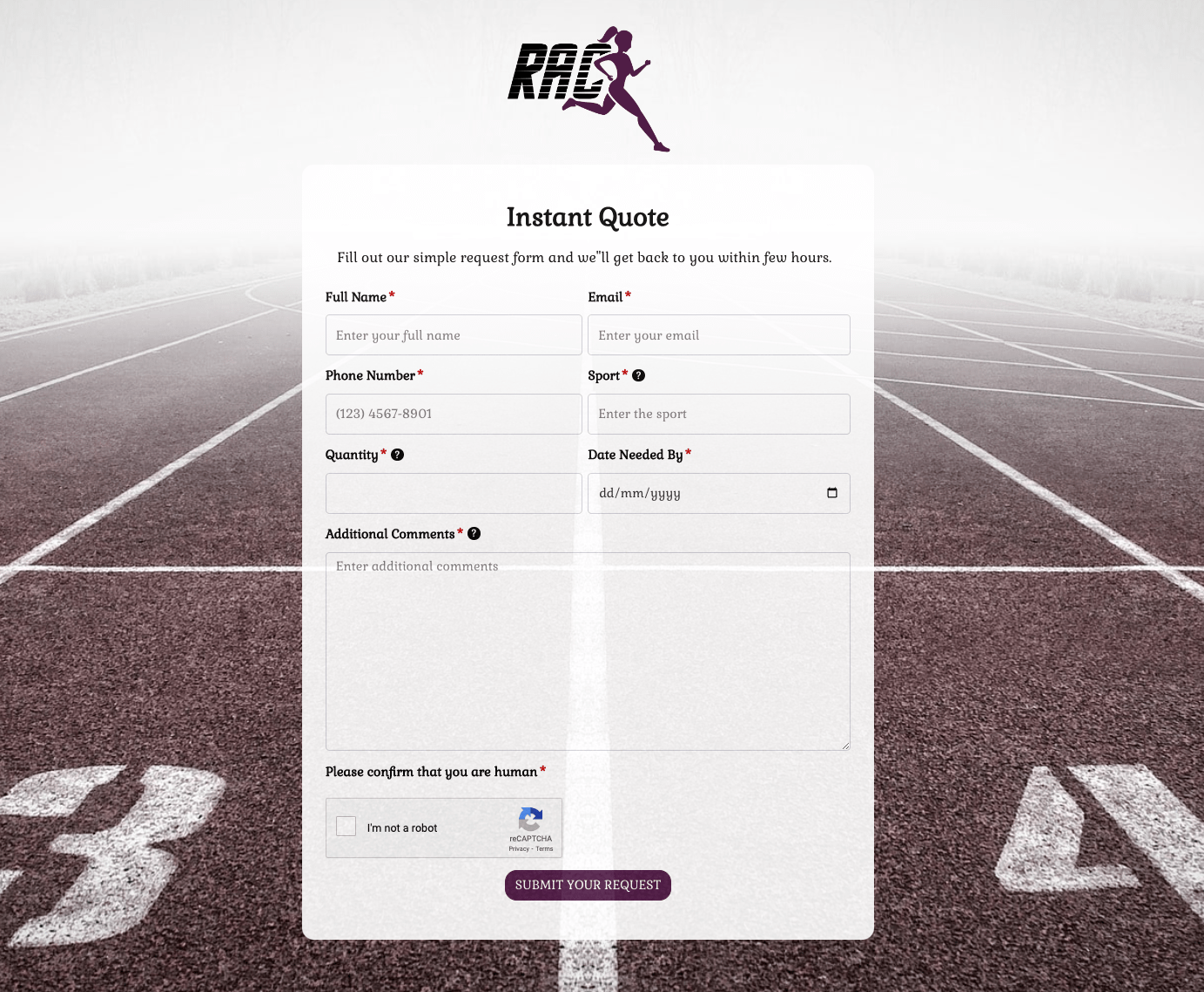 Instant Quote Form
Instant Quote Form
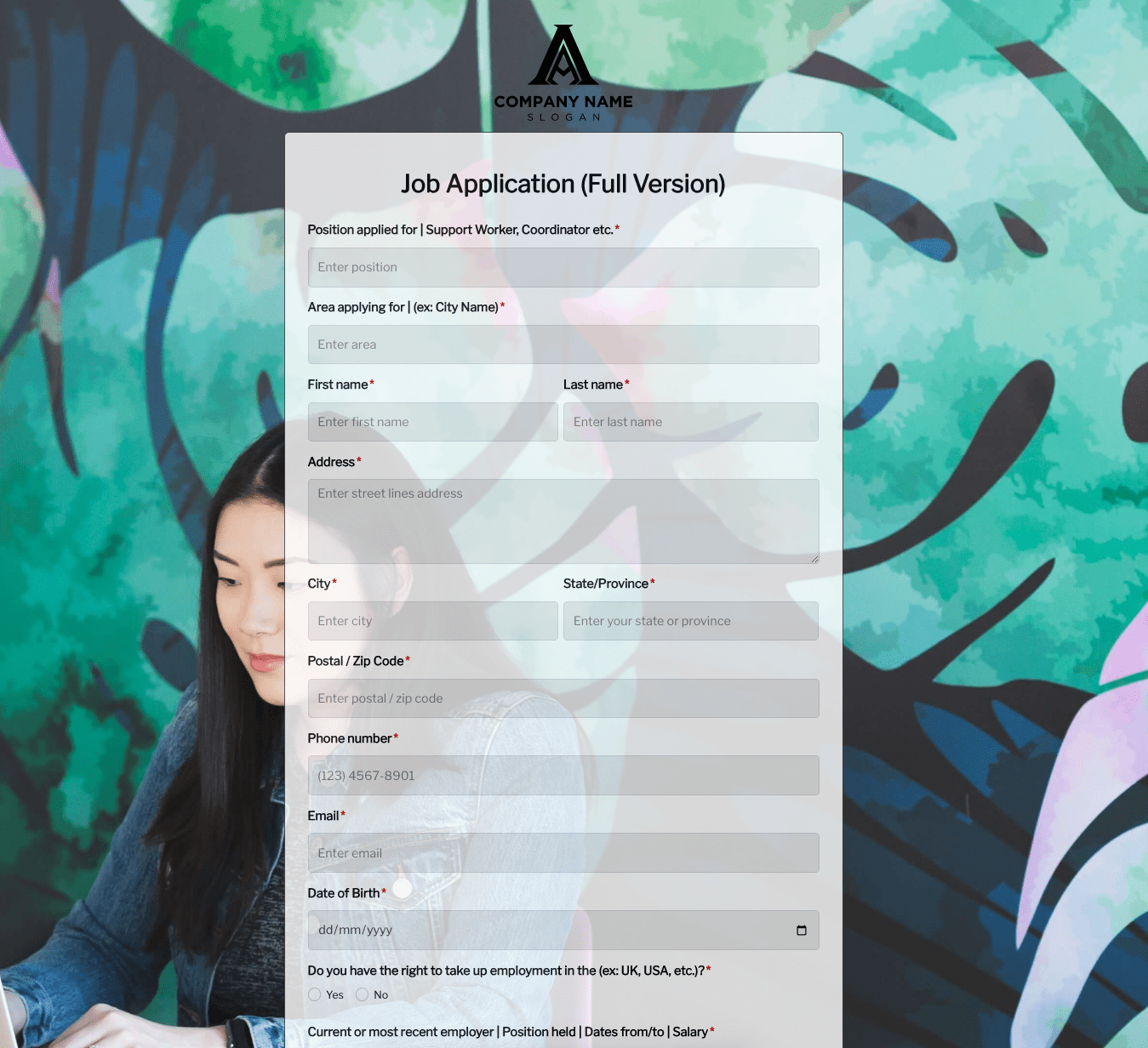 Job Application Form
Job Application Form
 Language & Literacy Lab Form
Language & Literacy Lab Form
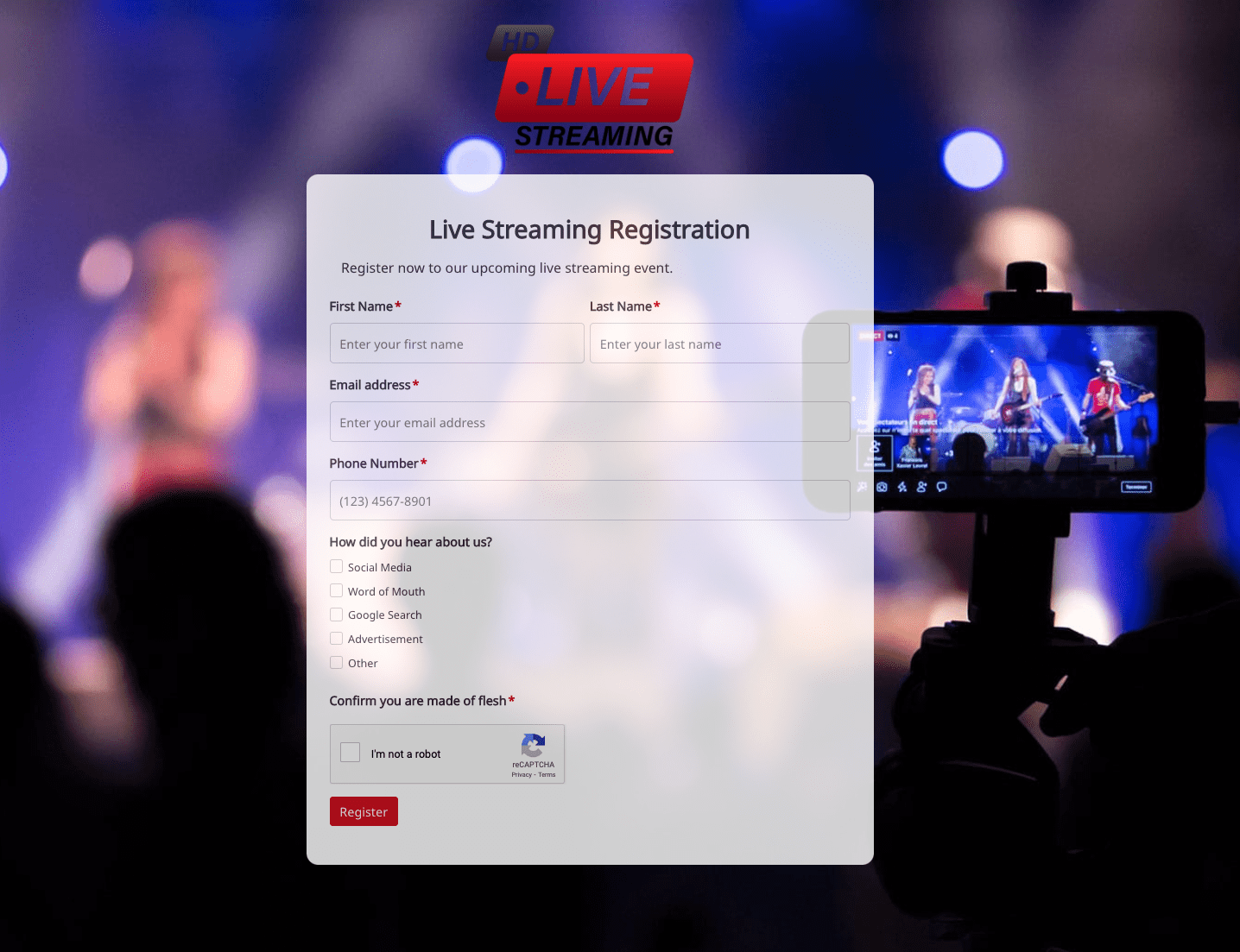 Live Streaming Registration Form
Live Streaming Registration Form
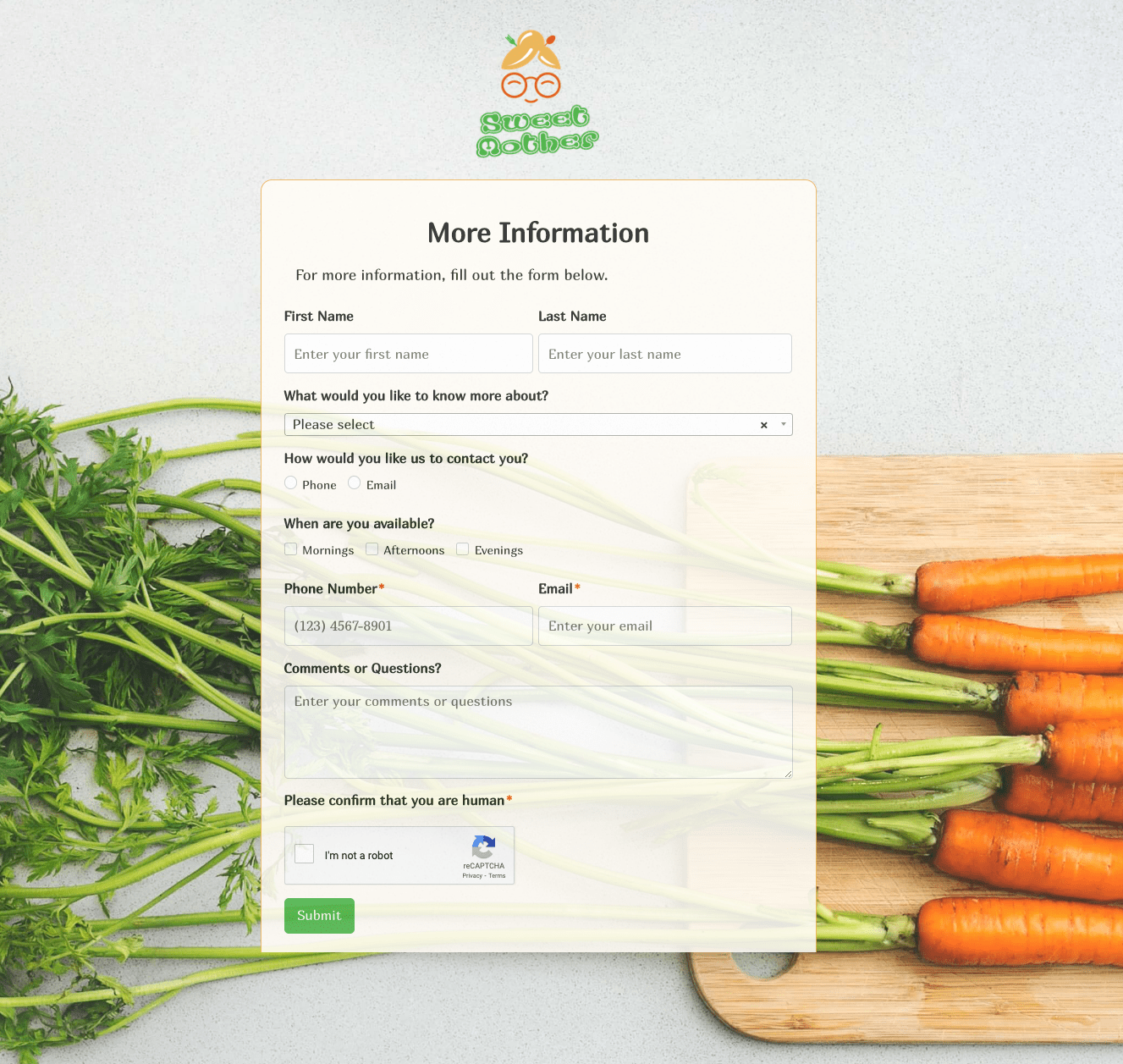 More Information Form
More Information Form
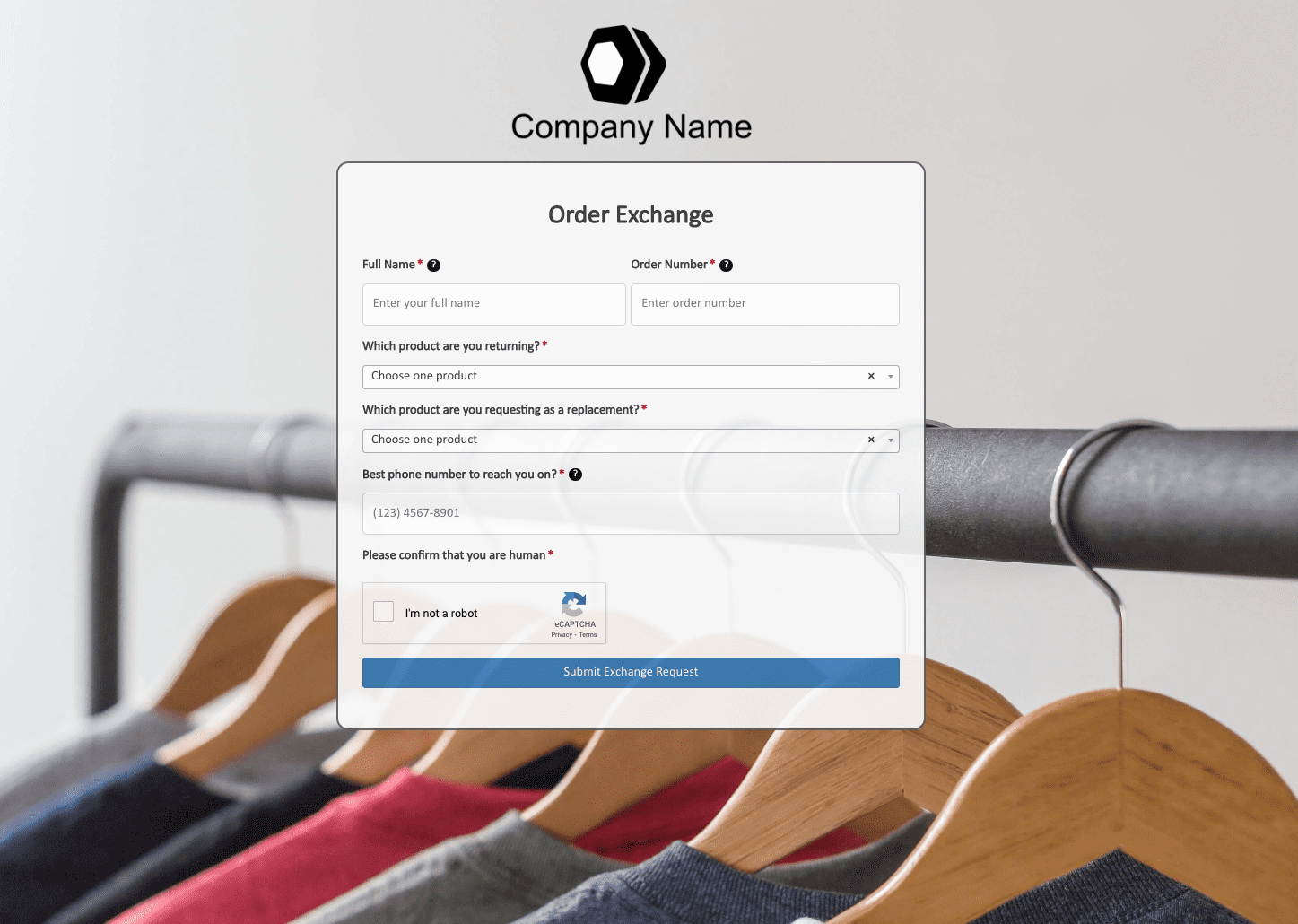 Order Exchange Form
Order Exchange Form
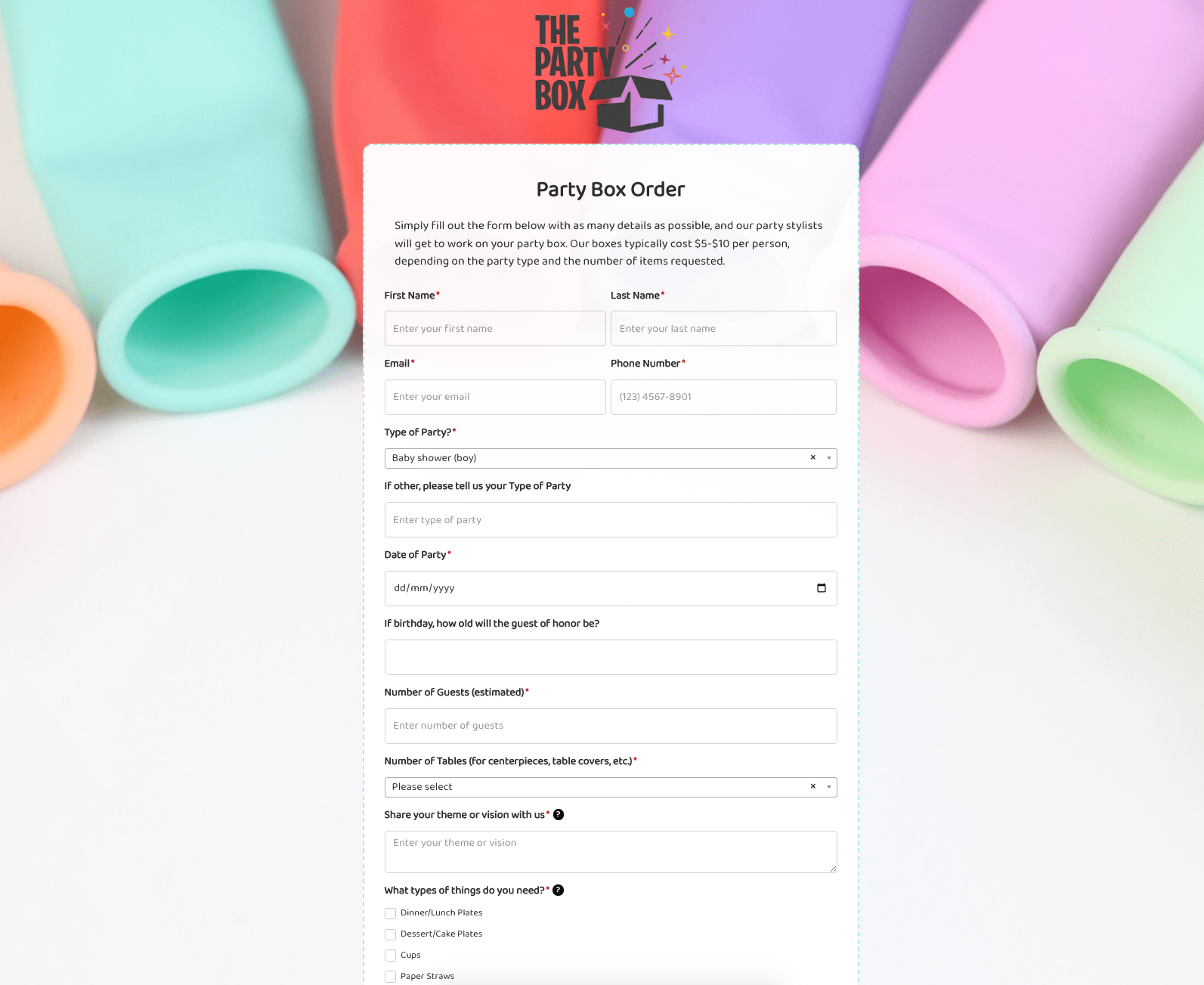 Party Box Order Form
Party Box Order Form
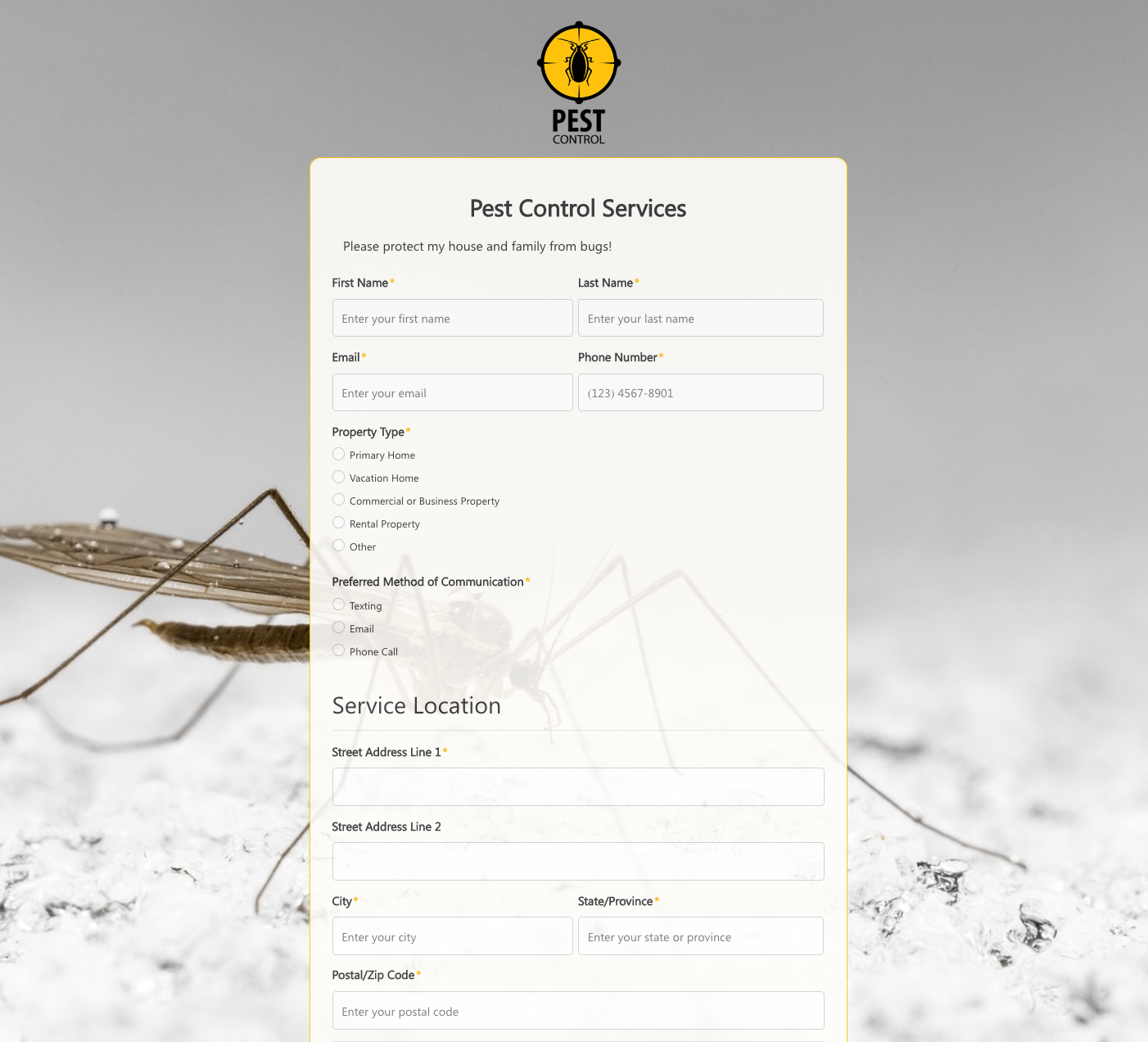 Pest Control Services Form
Pest Control Services Form
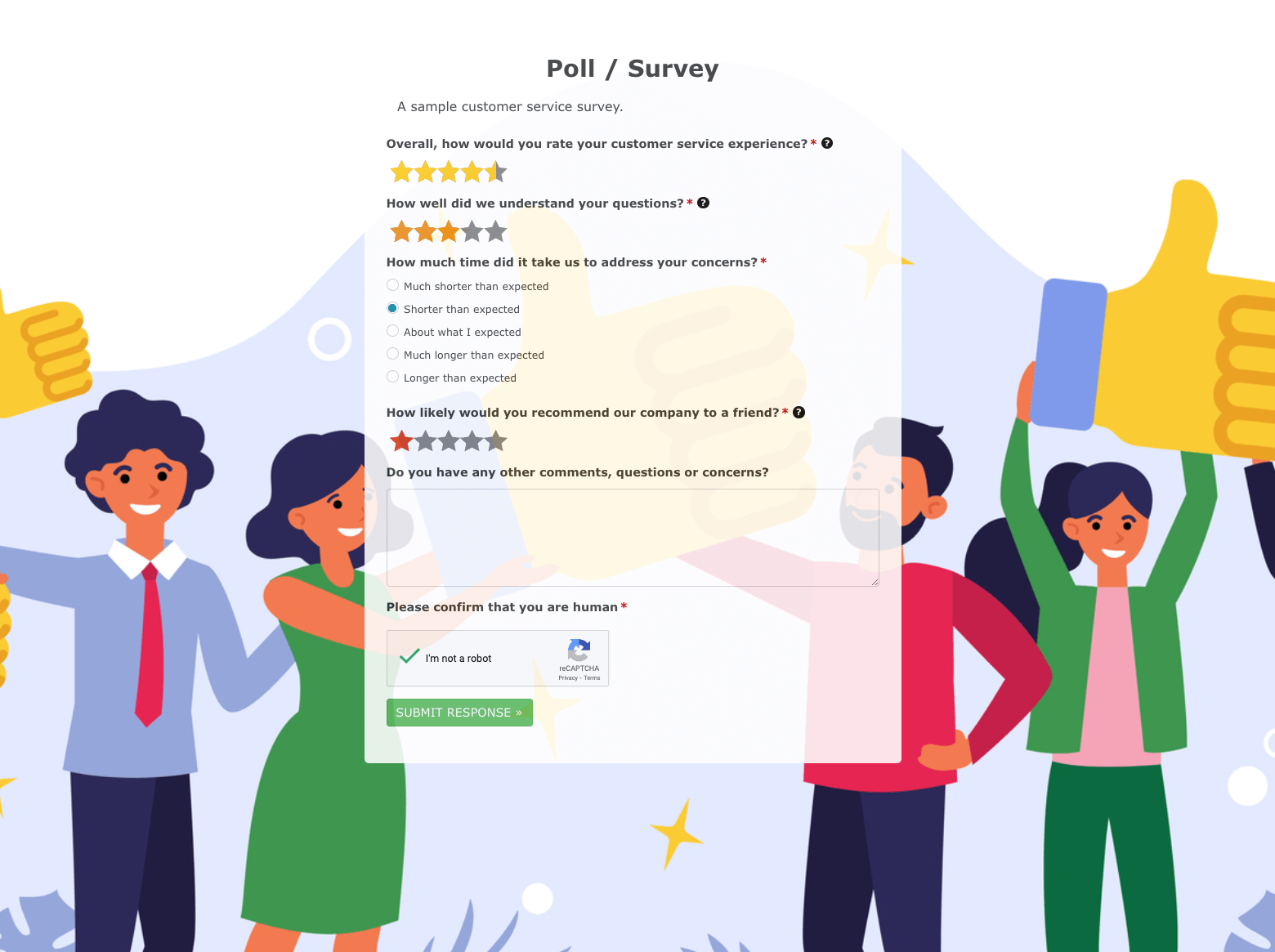 Poll / Survey Form
Poll / Survey Form
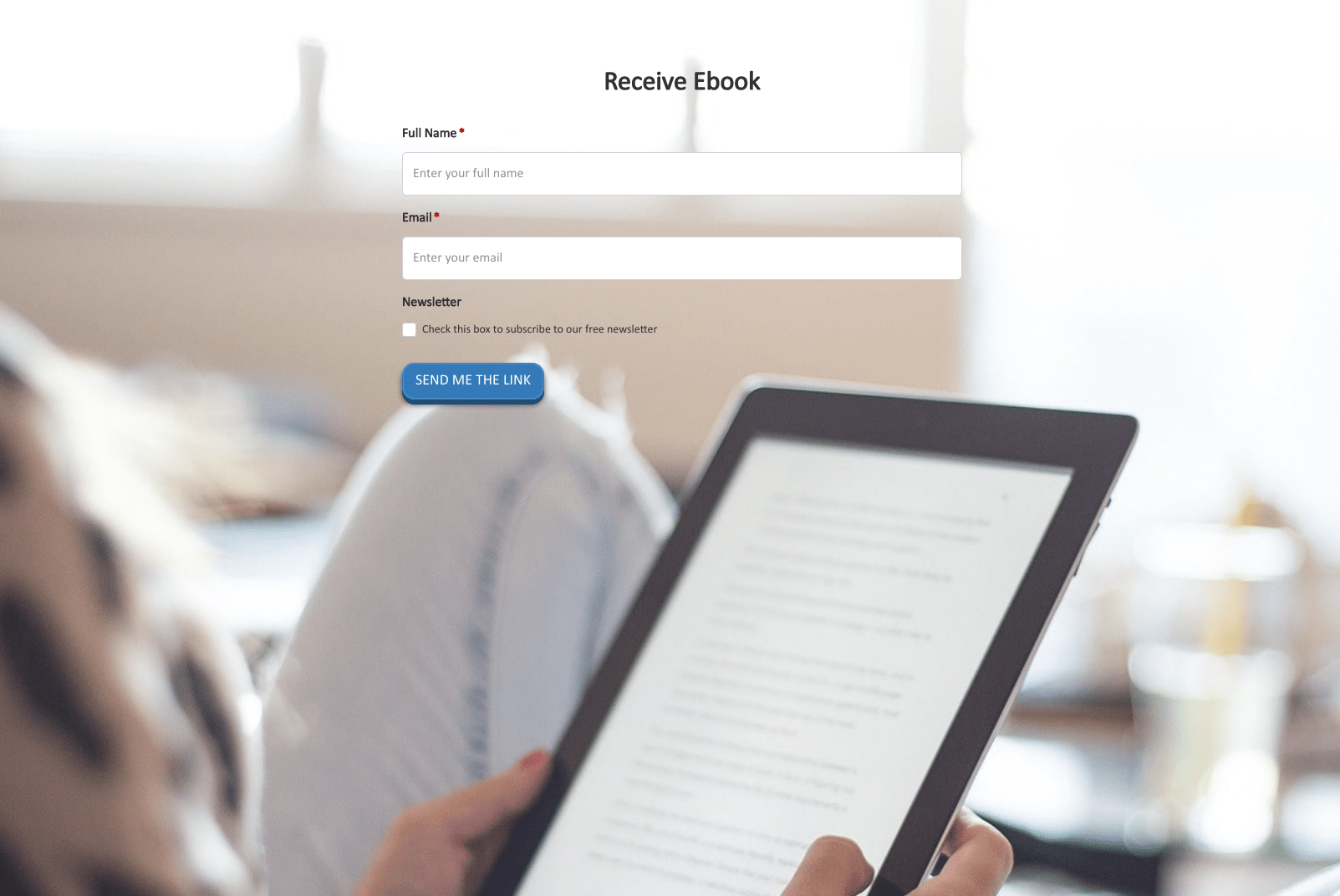 Receive Ebook Form
Receive Ebook Form
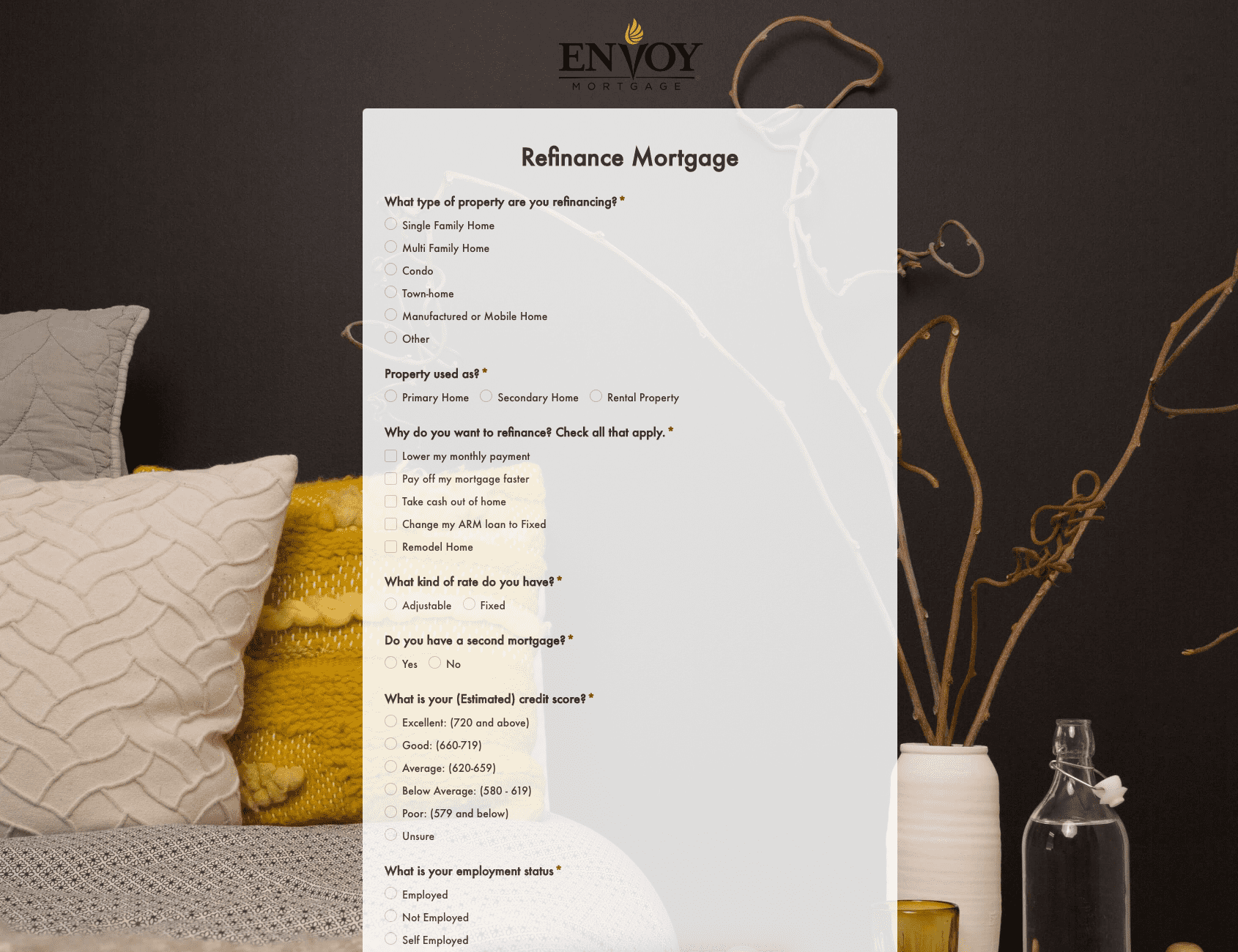 Refinance Mortgage Form
Refinance Mortgage Form
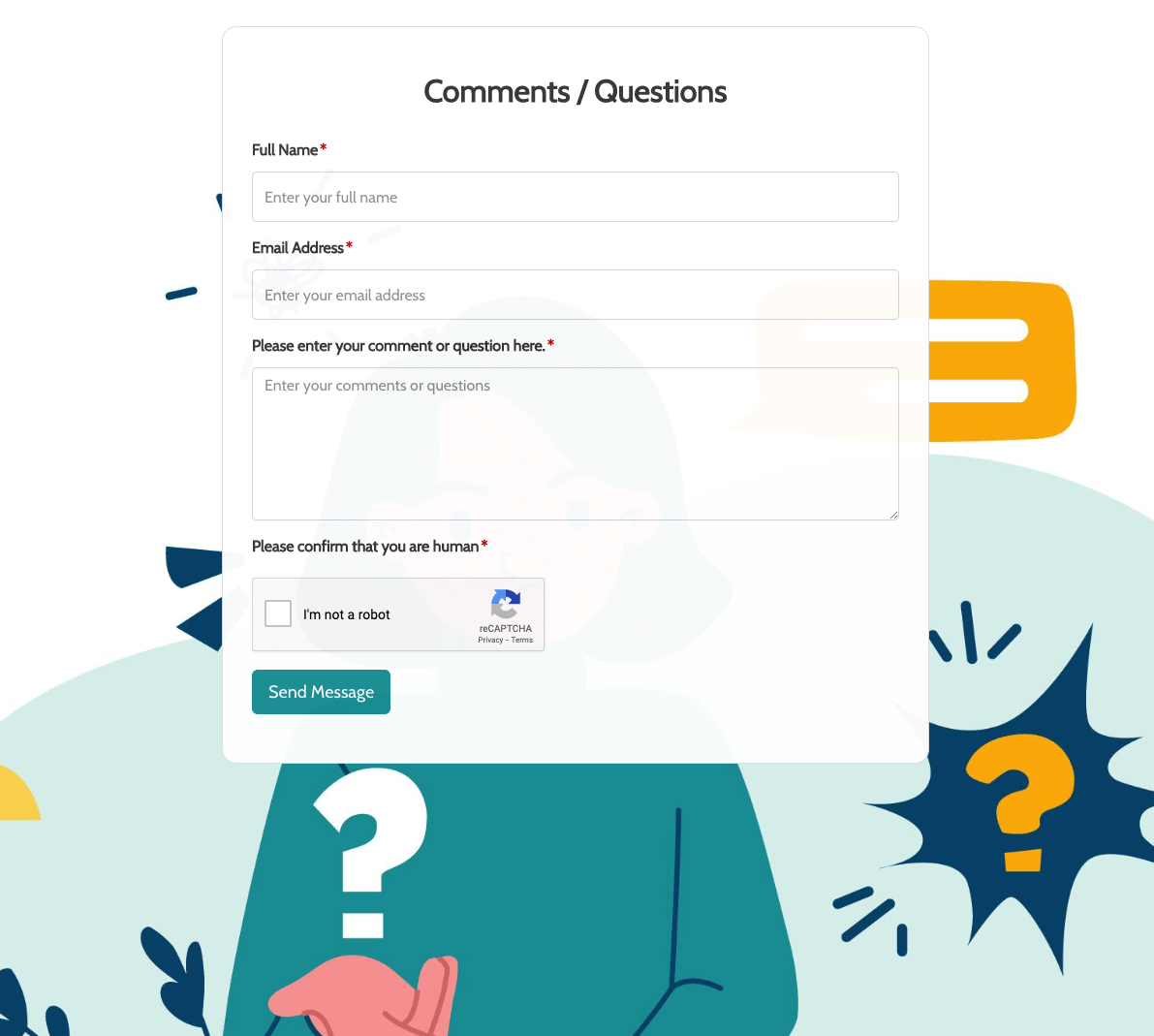 Remarks / Questions Form
Remarks / Questions Form
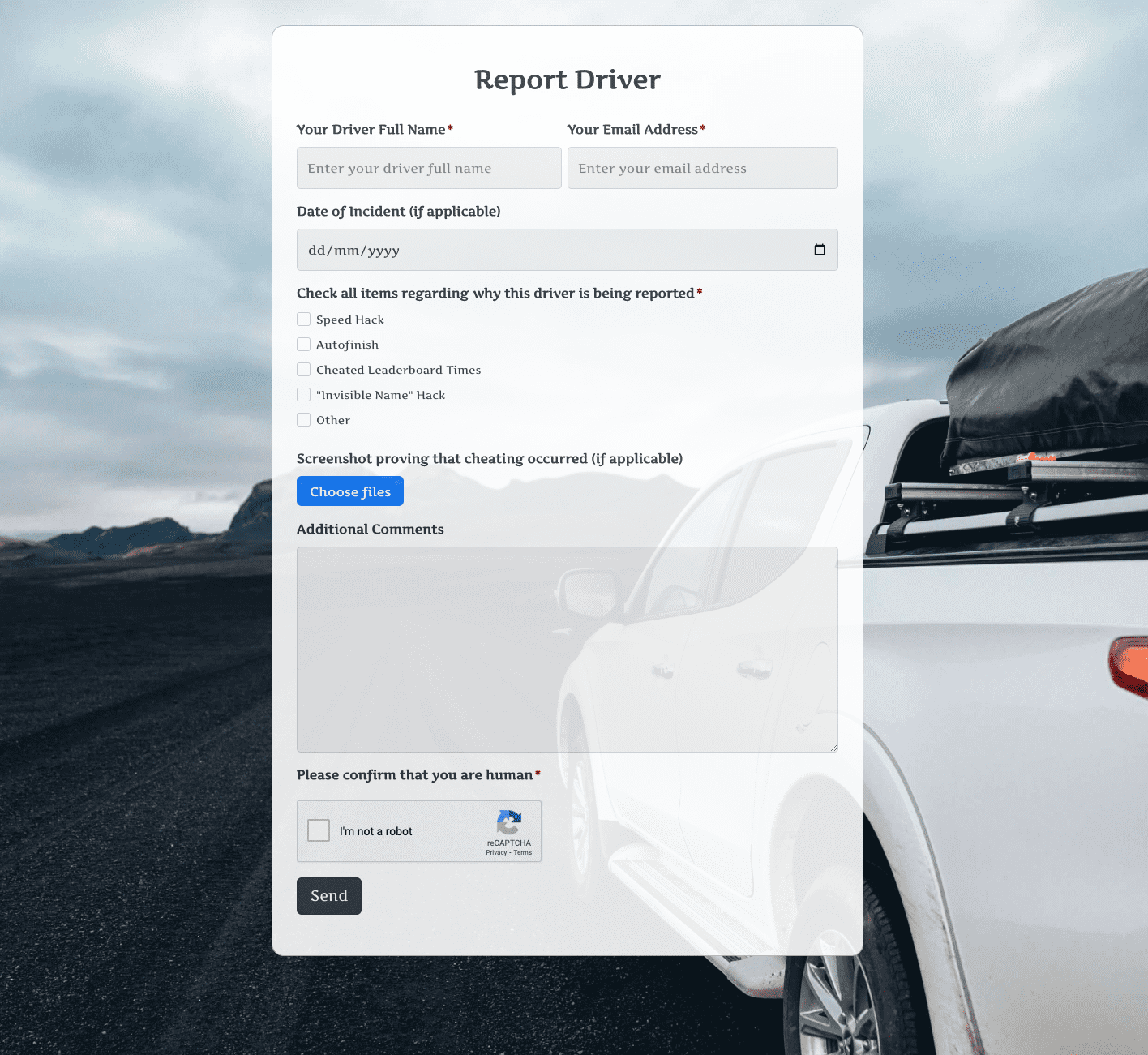 Report Driver Form
Report Driver Form
 Retreat Information Form
Retreat Information Form
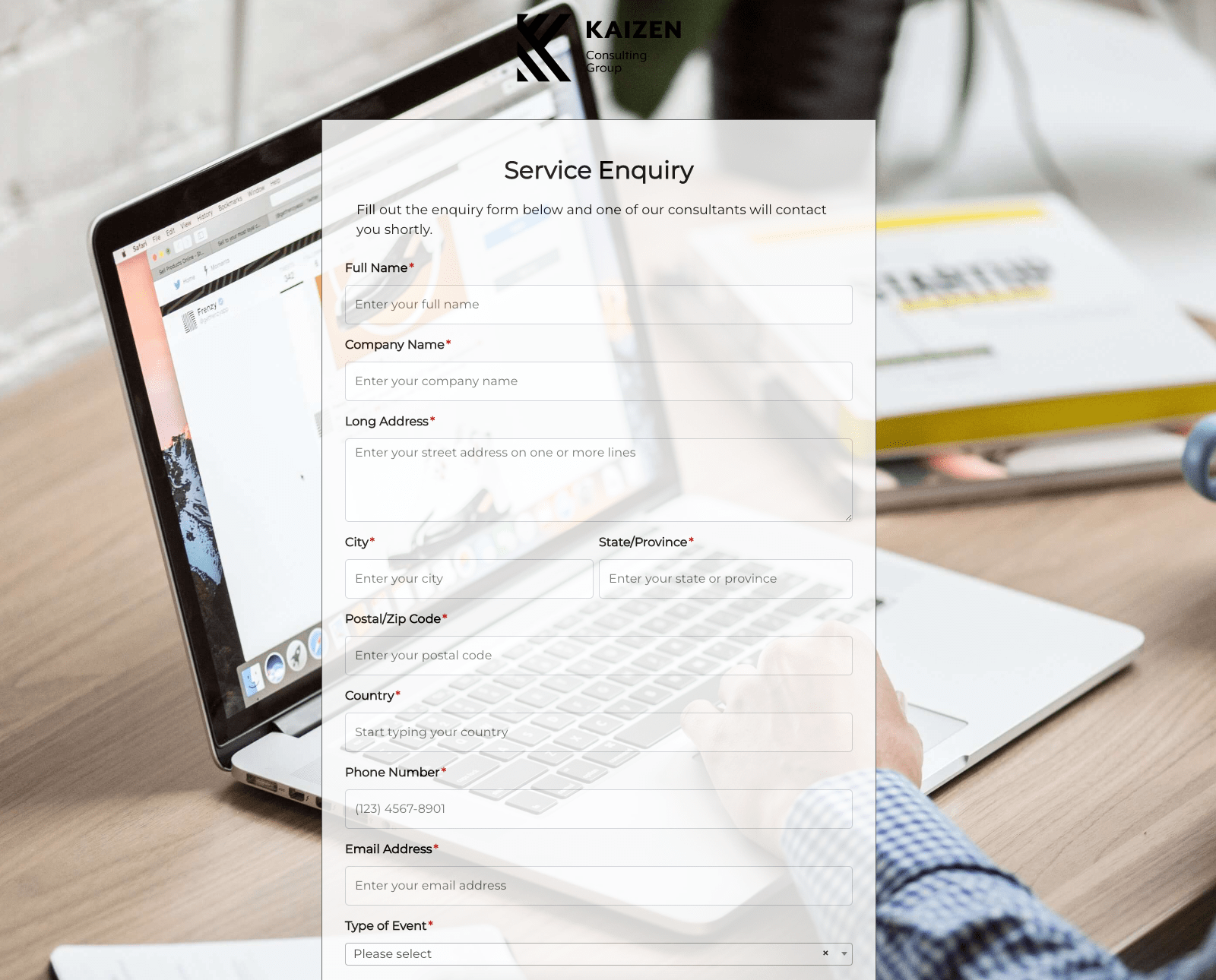 Service Enquiry Form
Service Enquiry Form
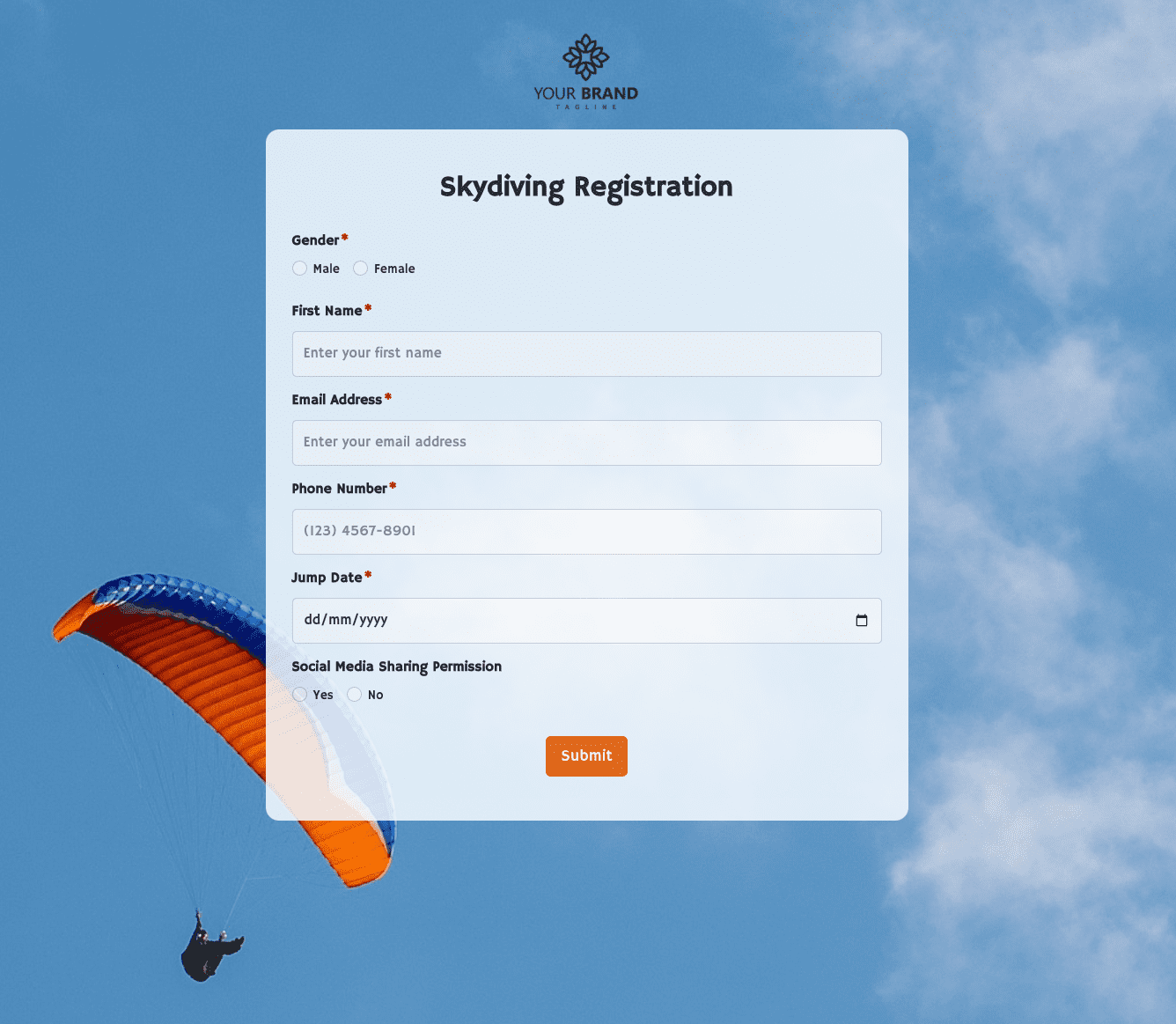 Skydiving Registration Form
Skydiving Registration Form
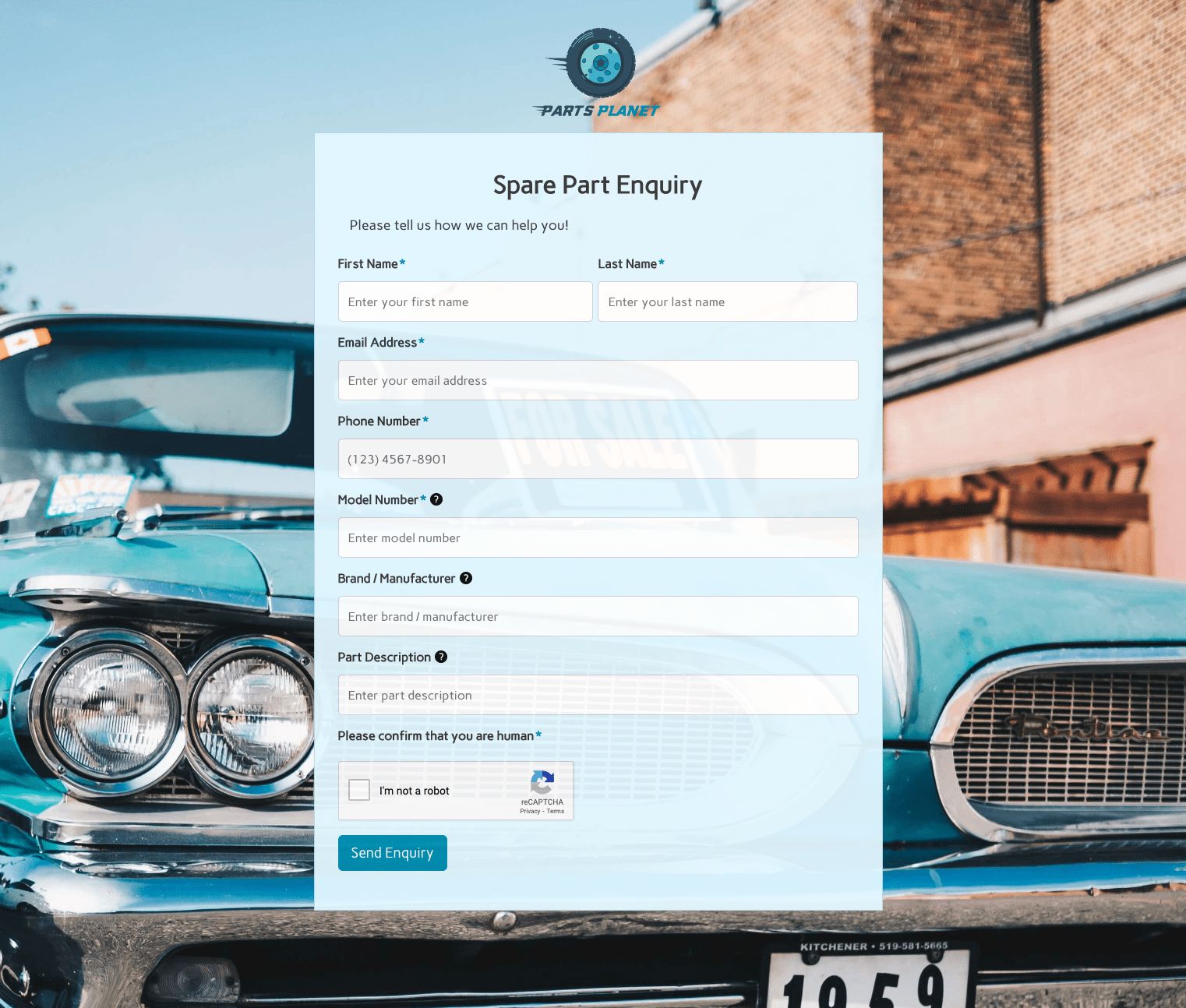 Spare Part Enquiry Form
Spare Part Enquiry Form
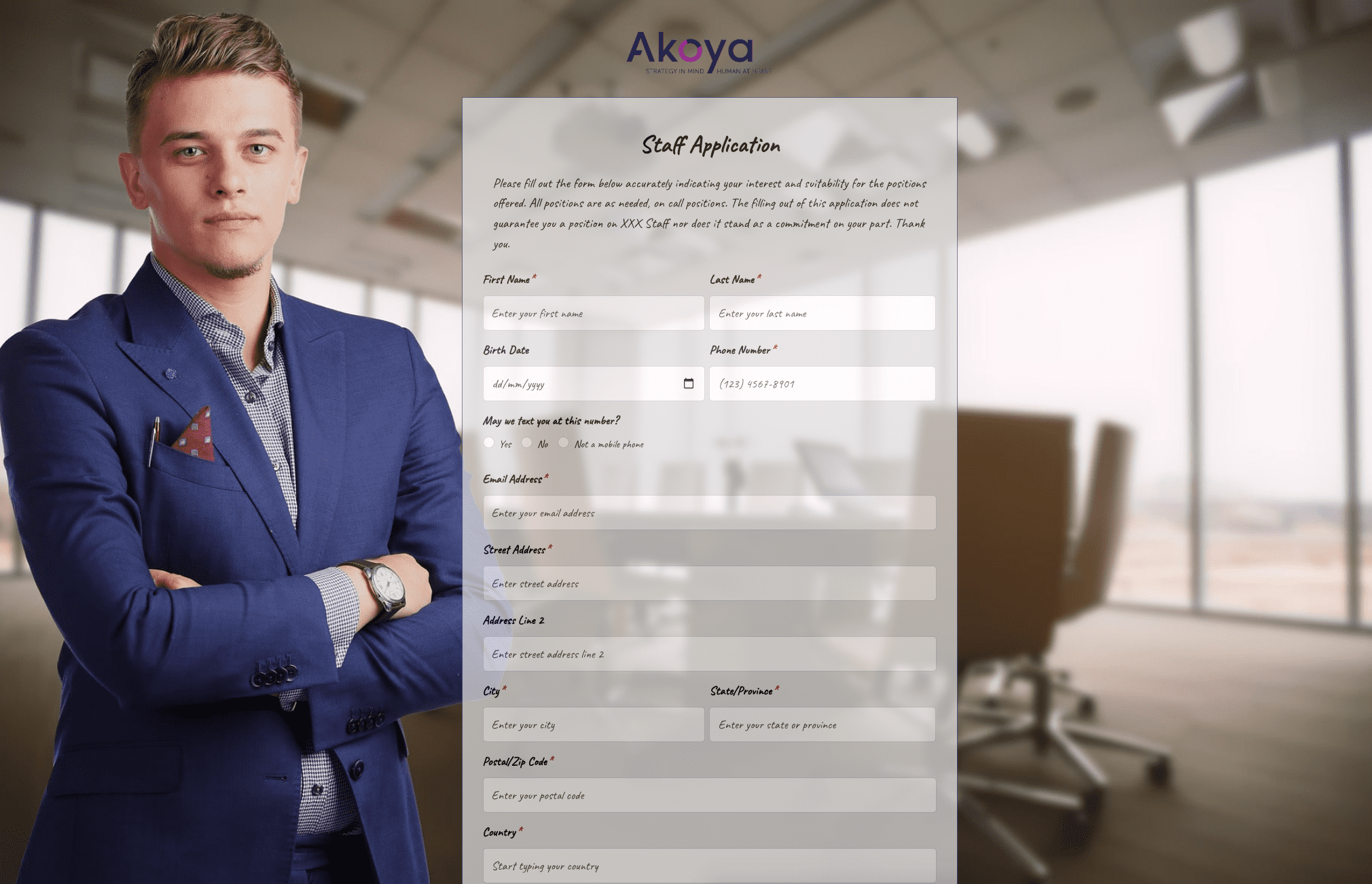 Staff Application Form
Staff Application Form
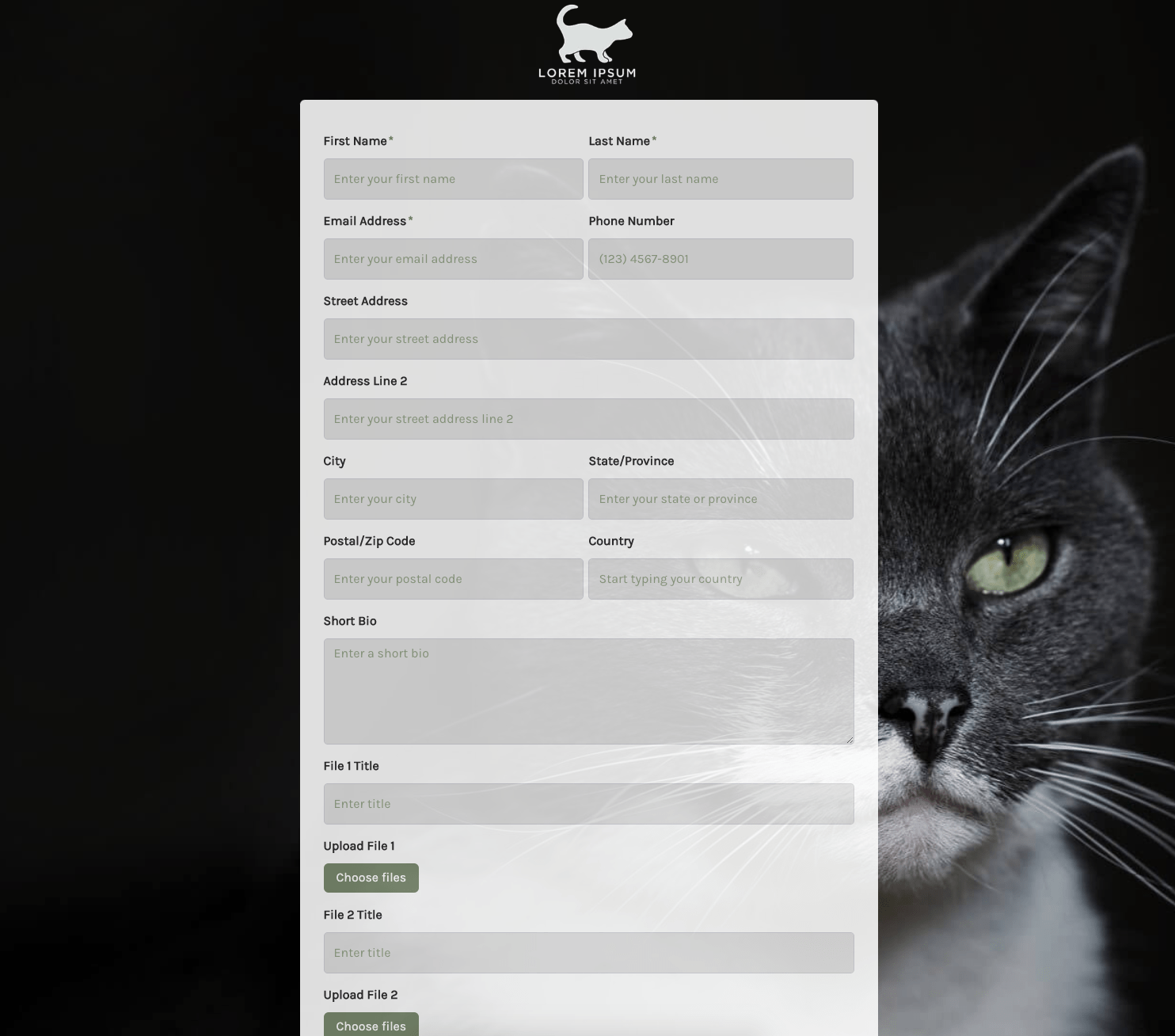 Submission Form
Submission Form
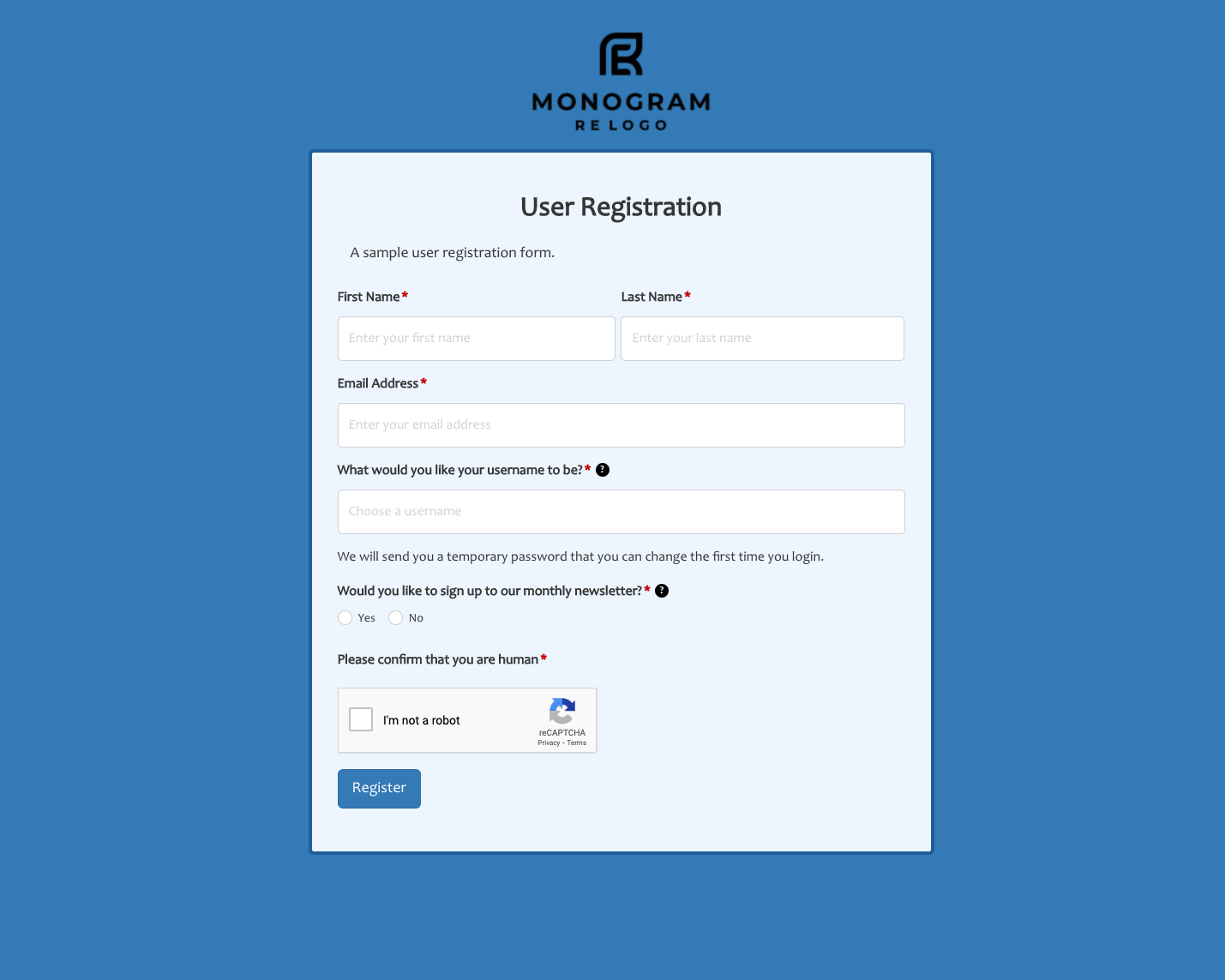 User Registration Form
User Registration Form
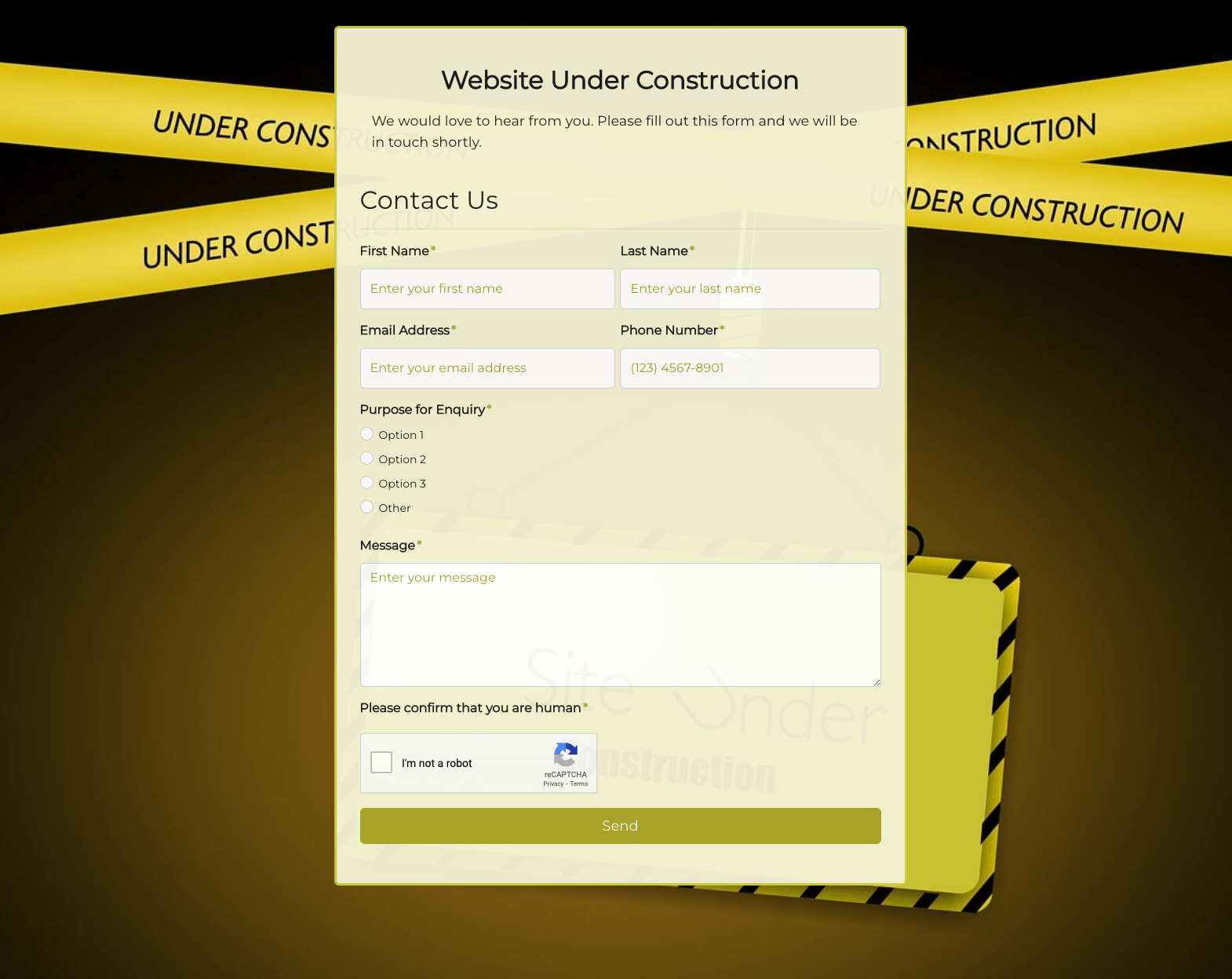 Website Under Construction Form
Website Under Construction Form
 Wedding Photographer Form
Wedding Photographer Form
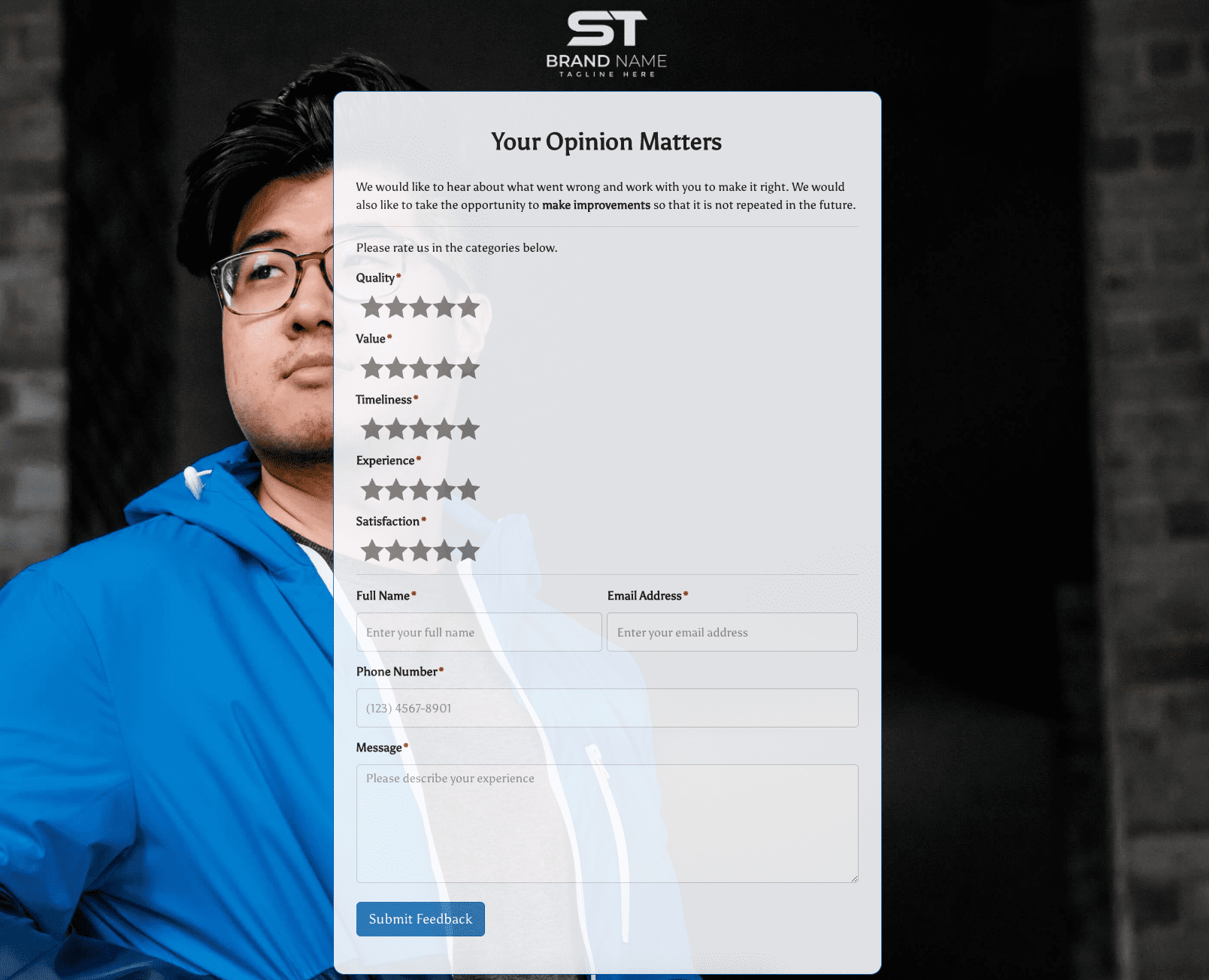 Your Opinion Matters Form
Your Opinion Matters Form











